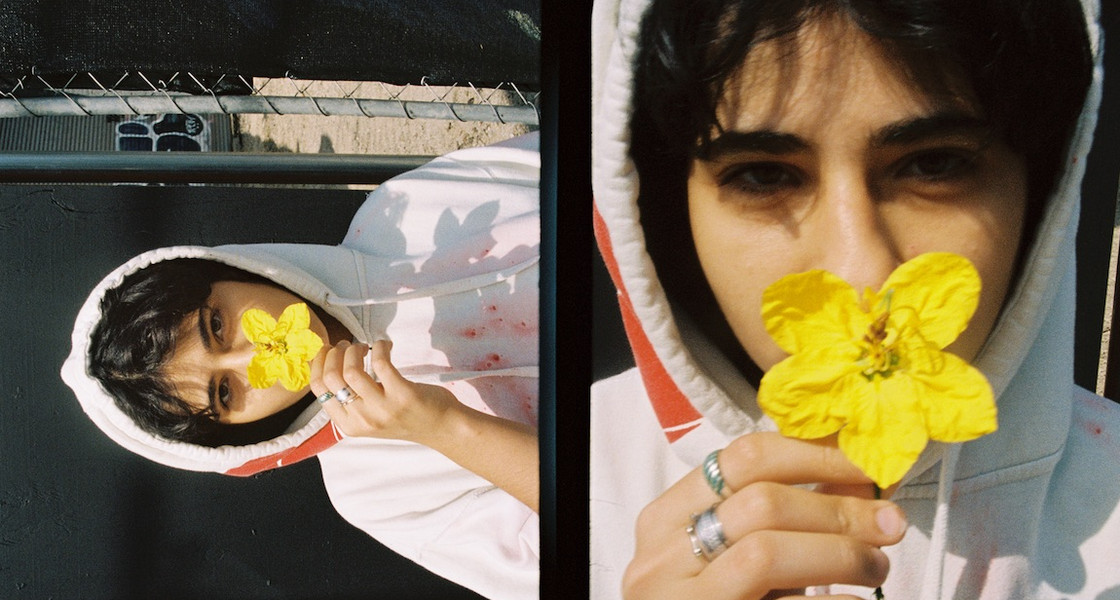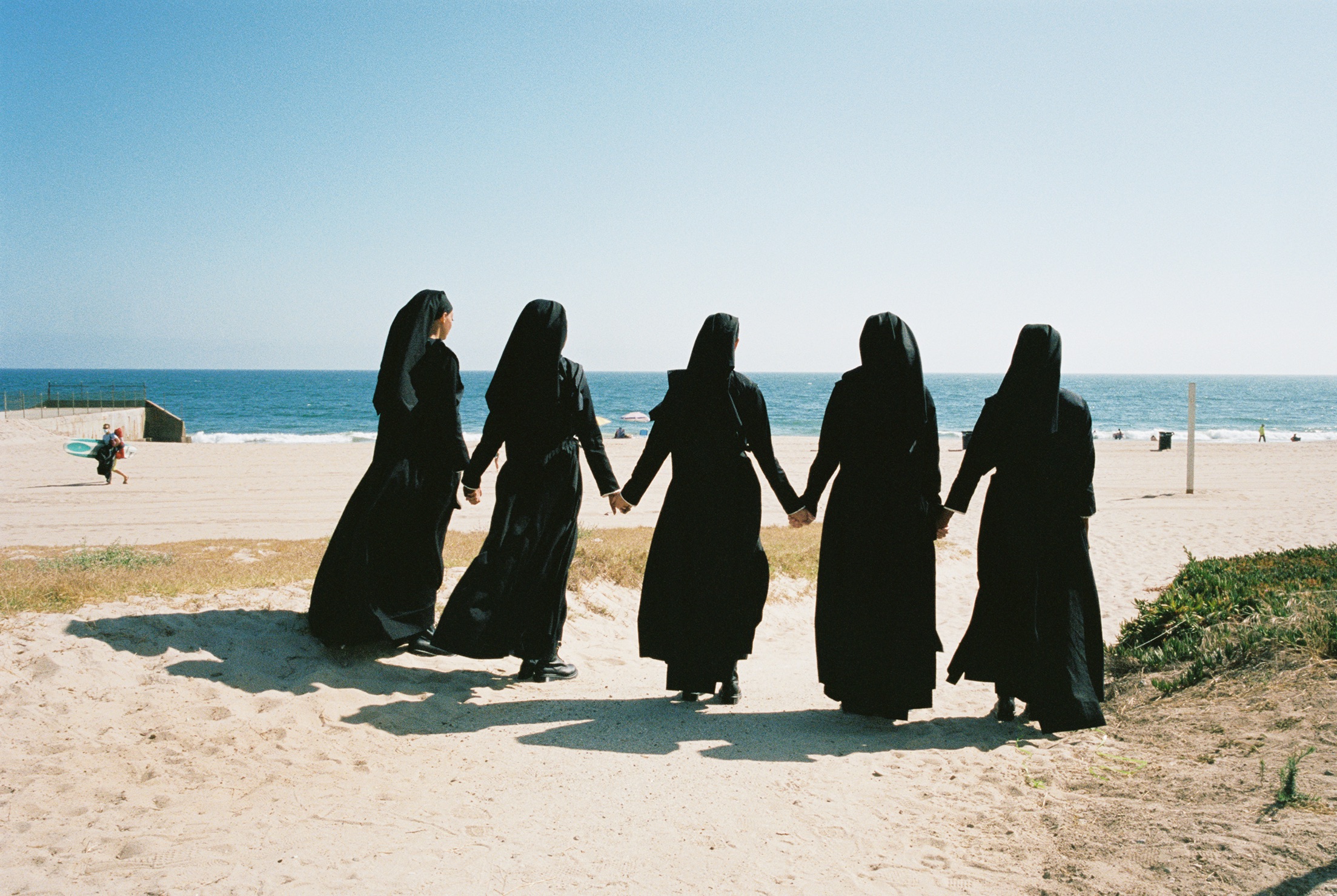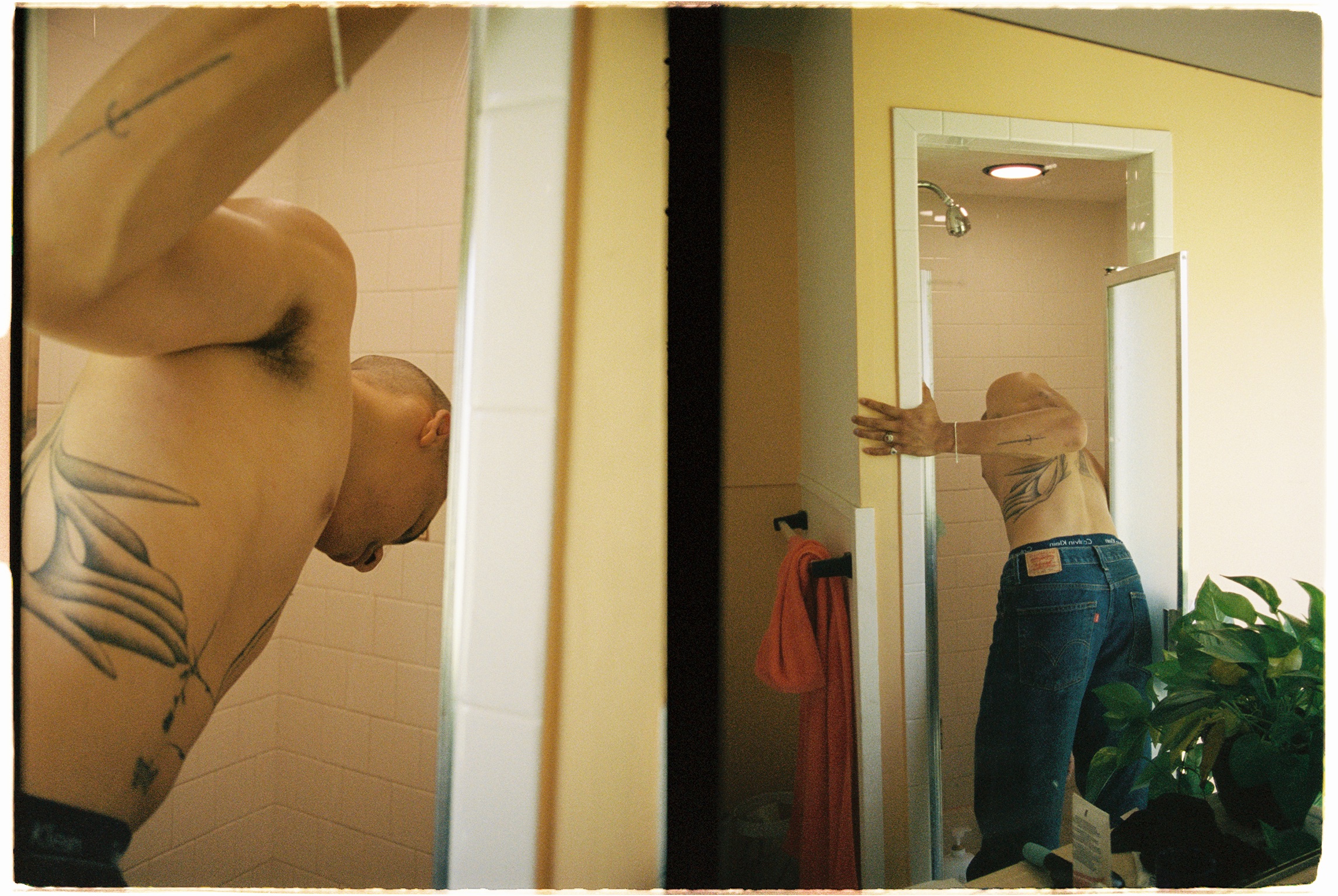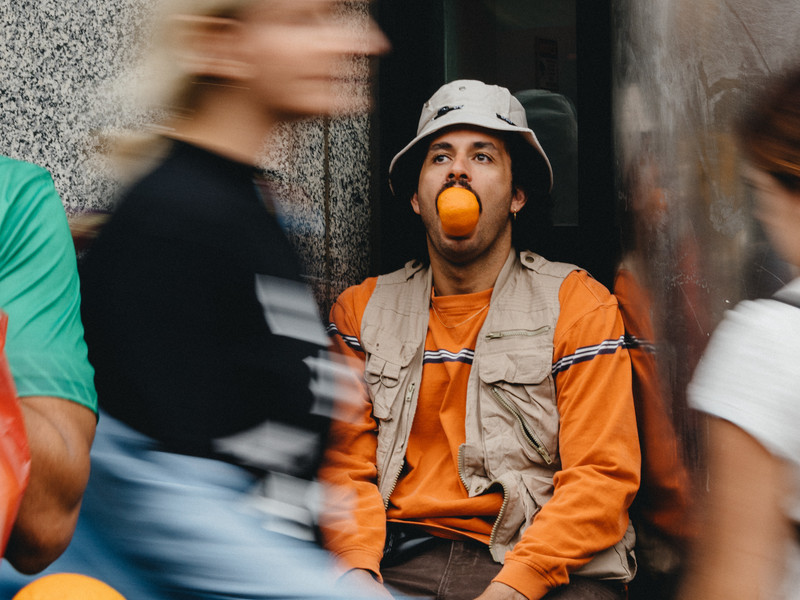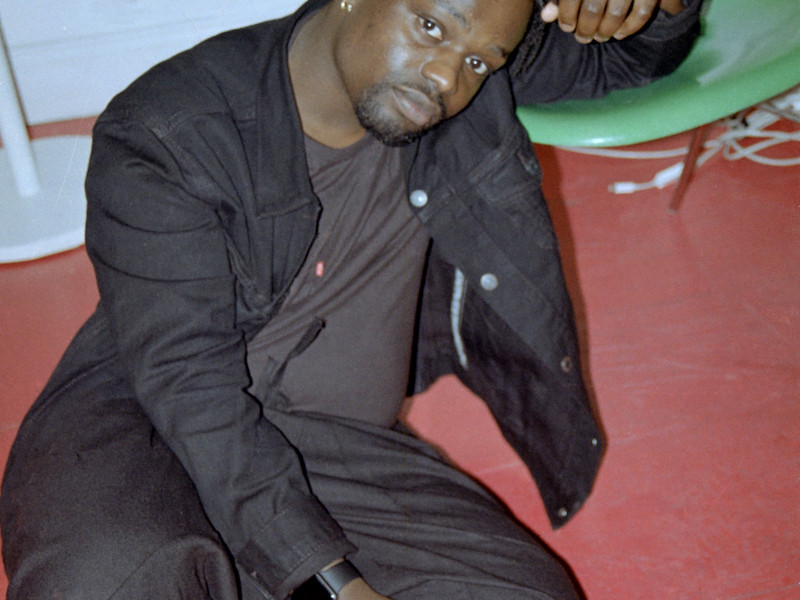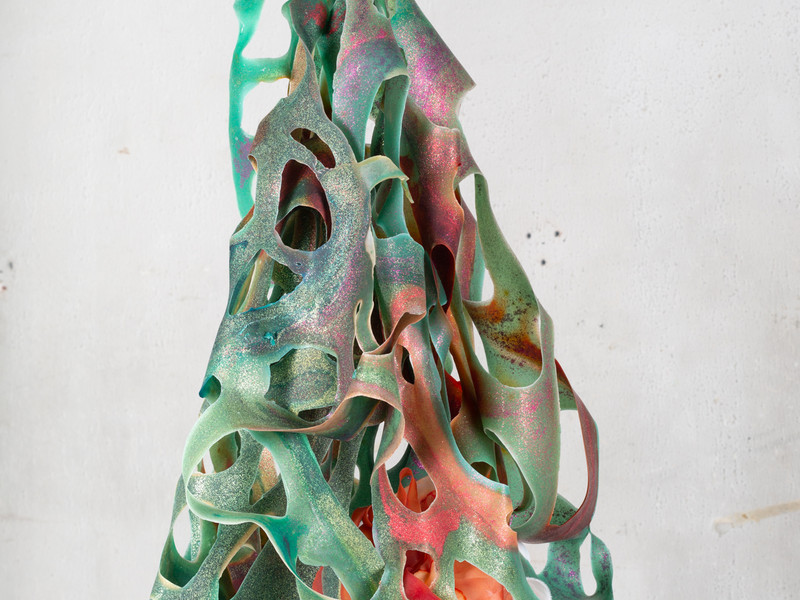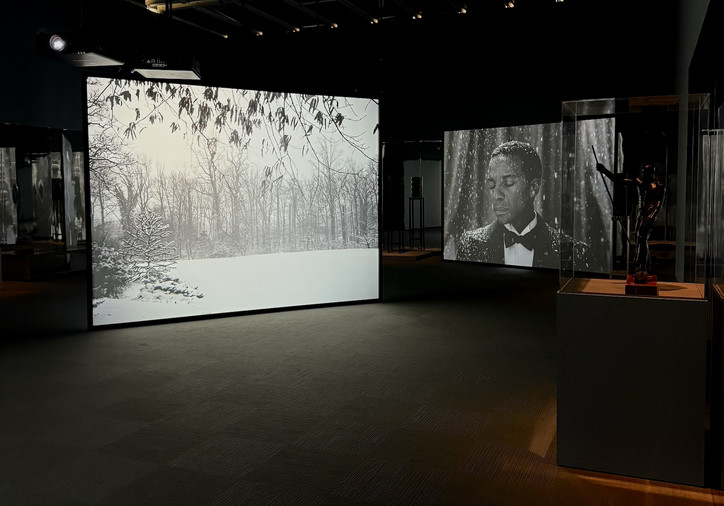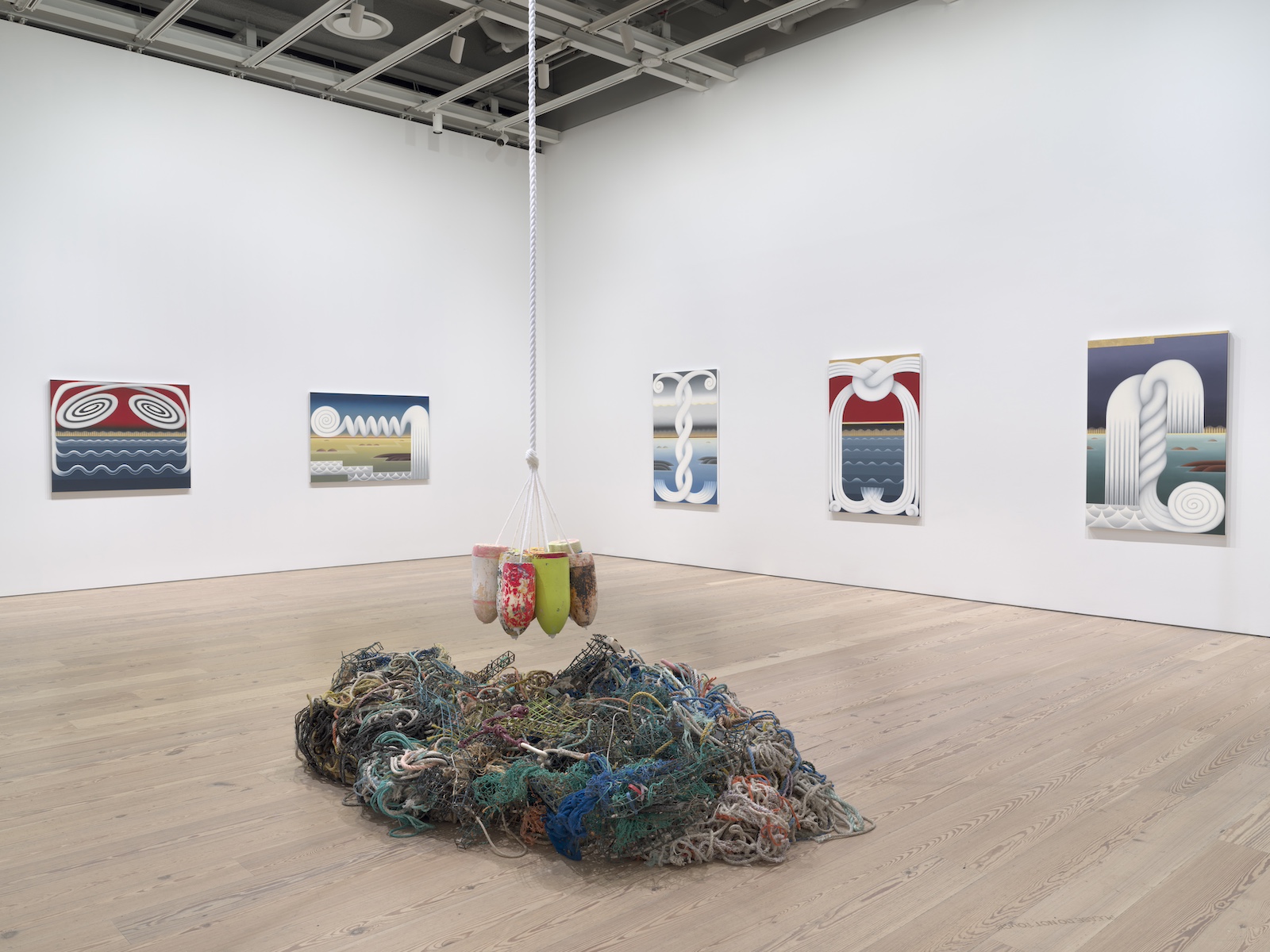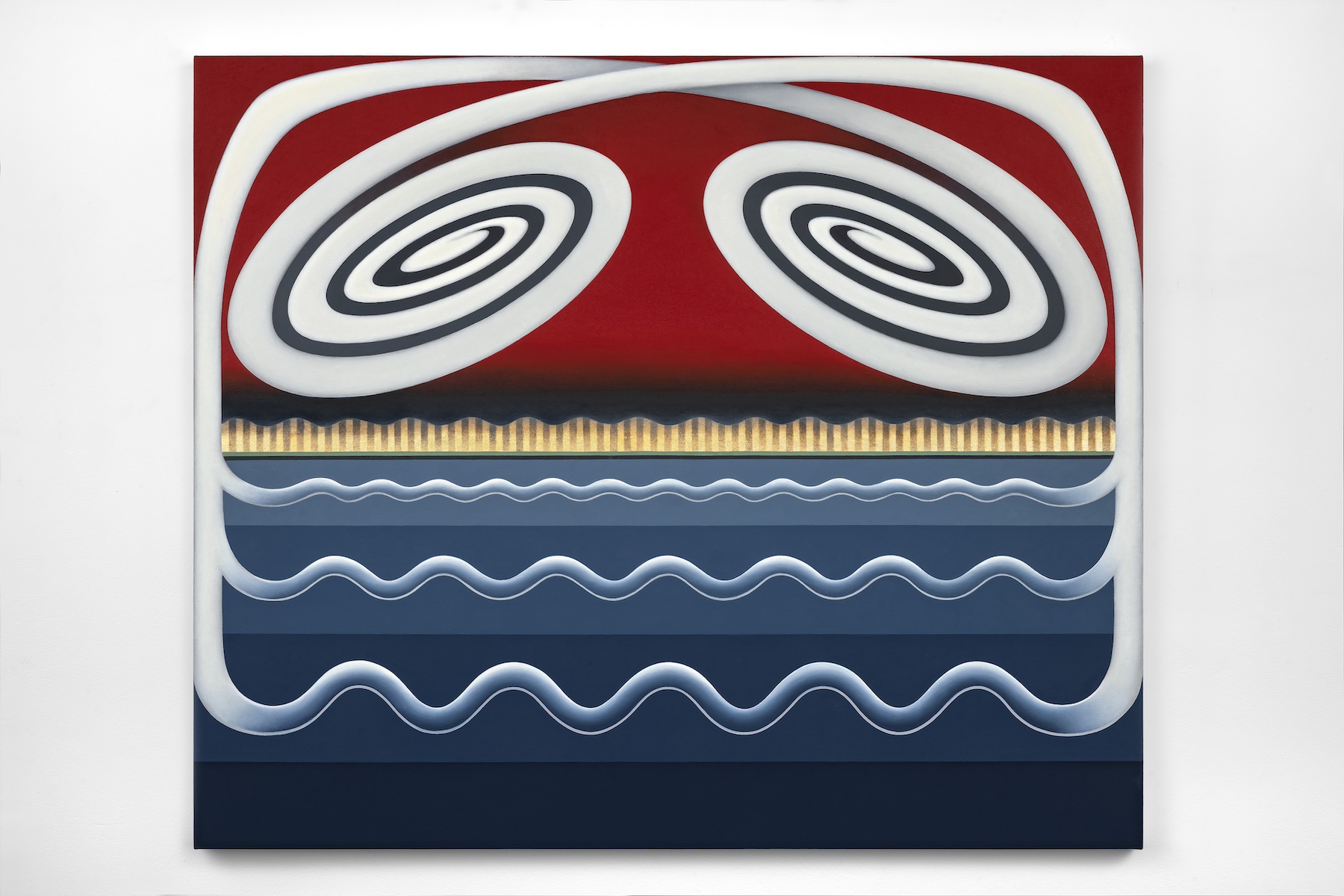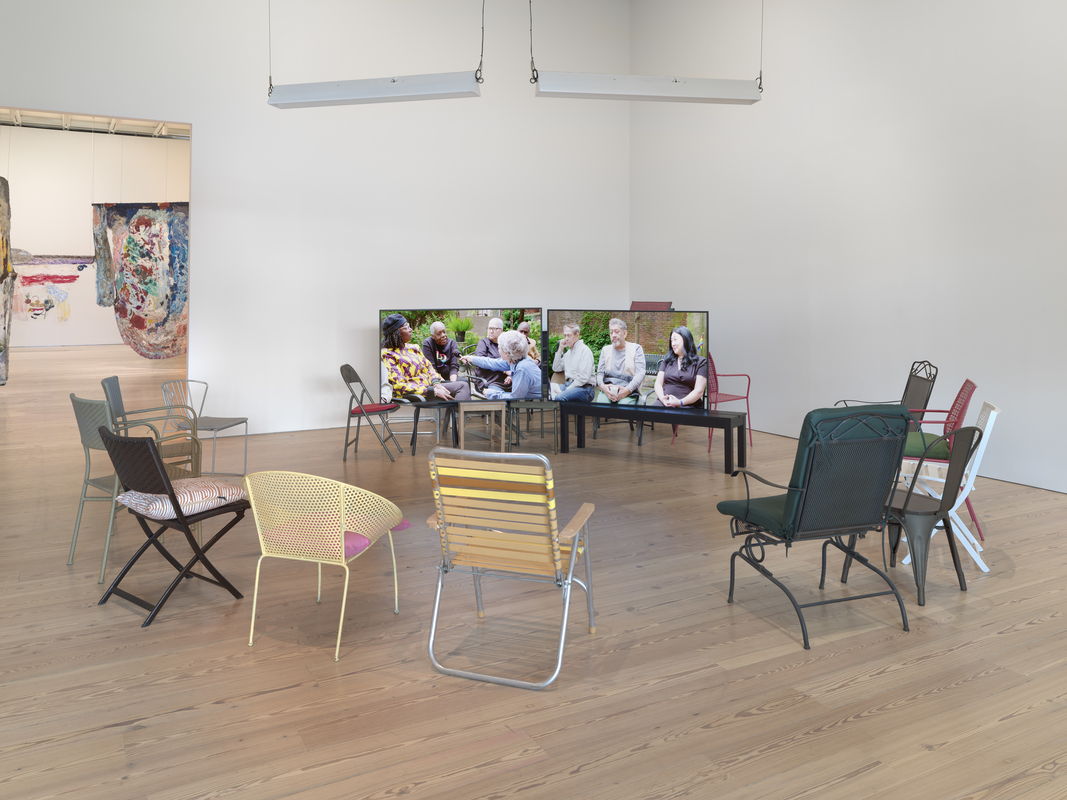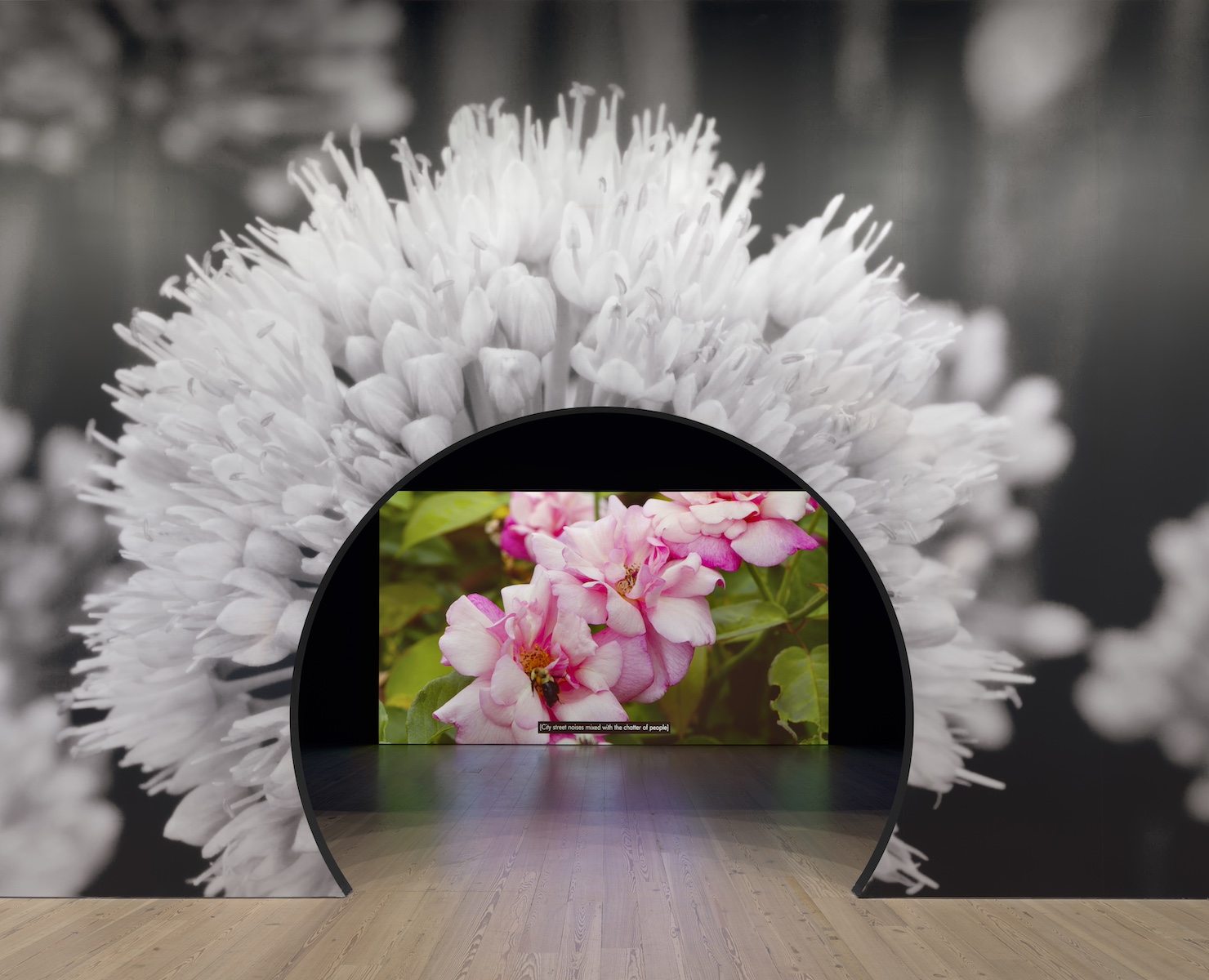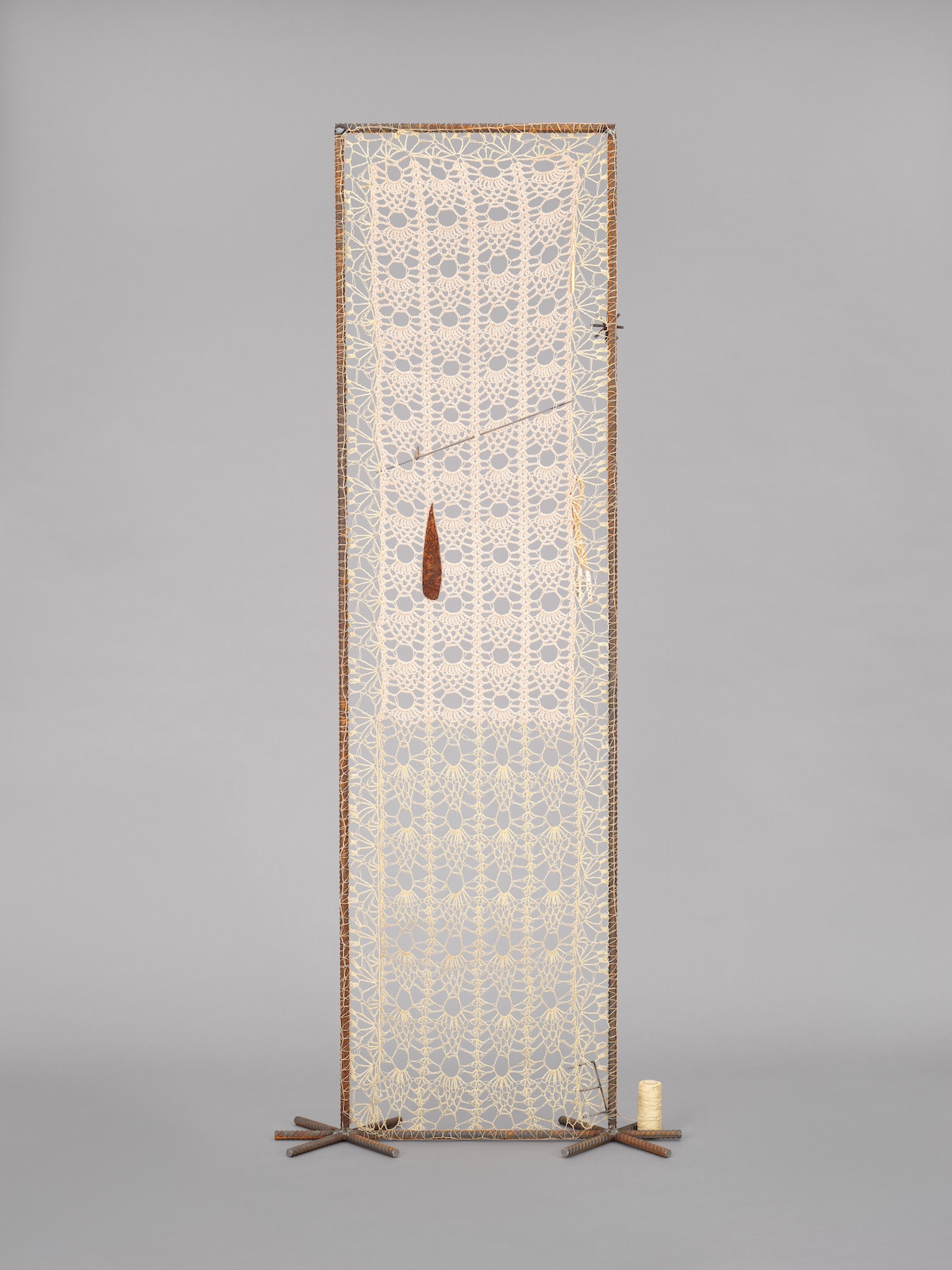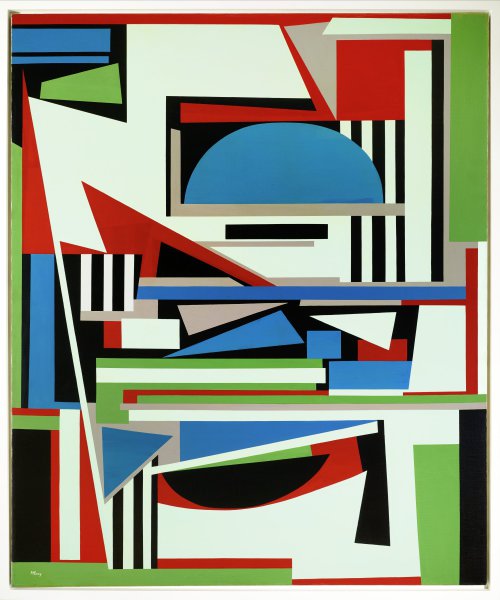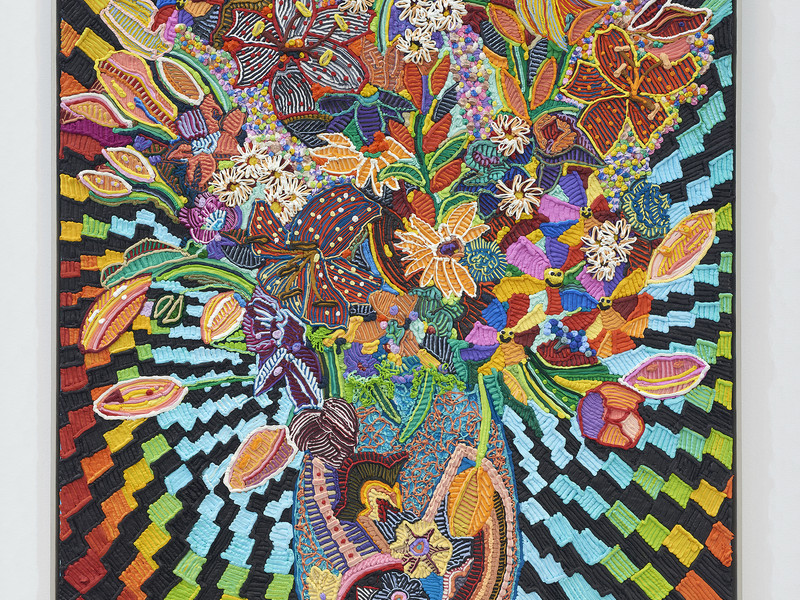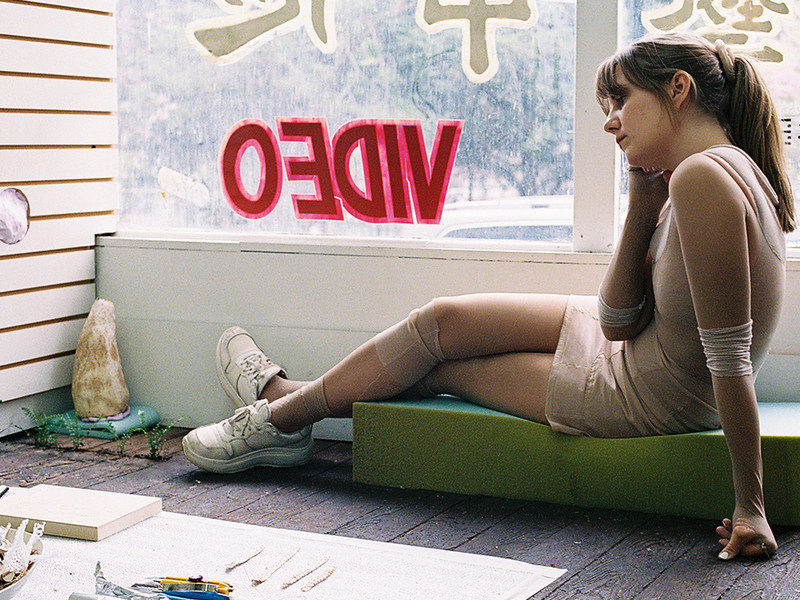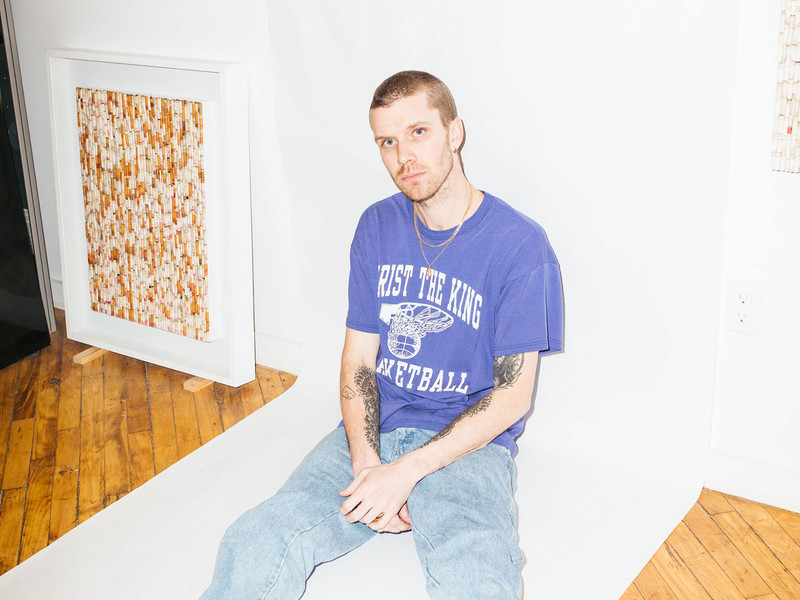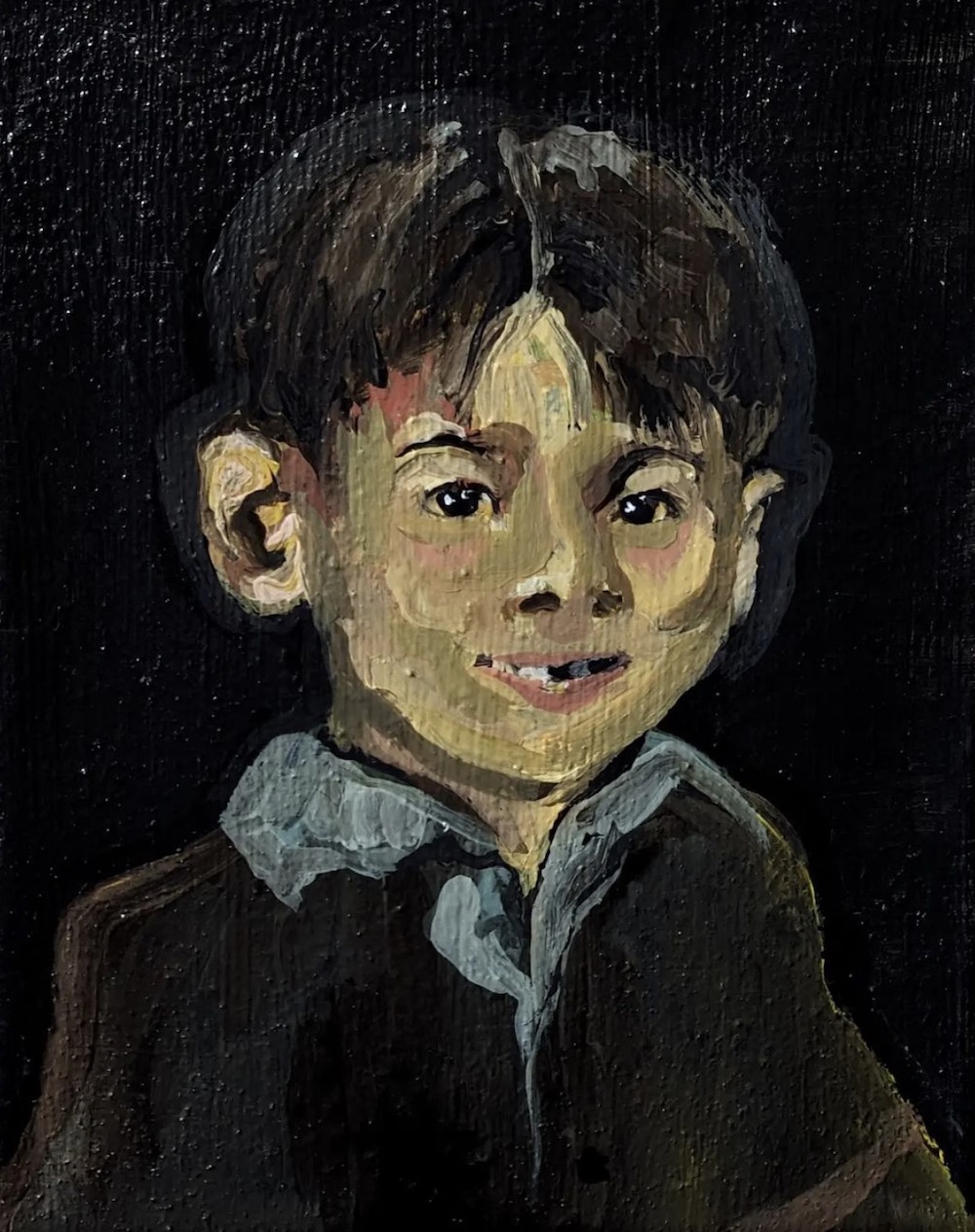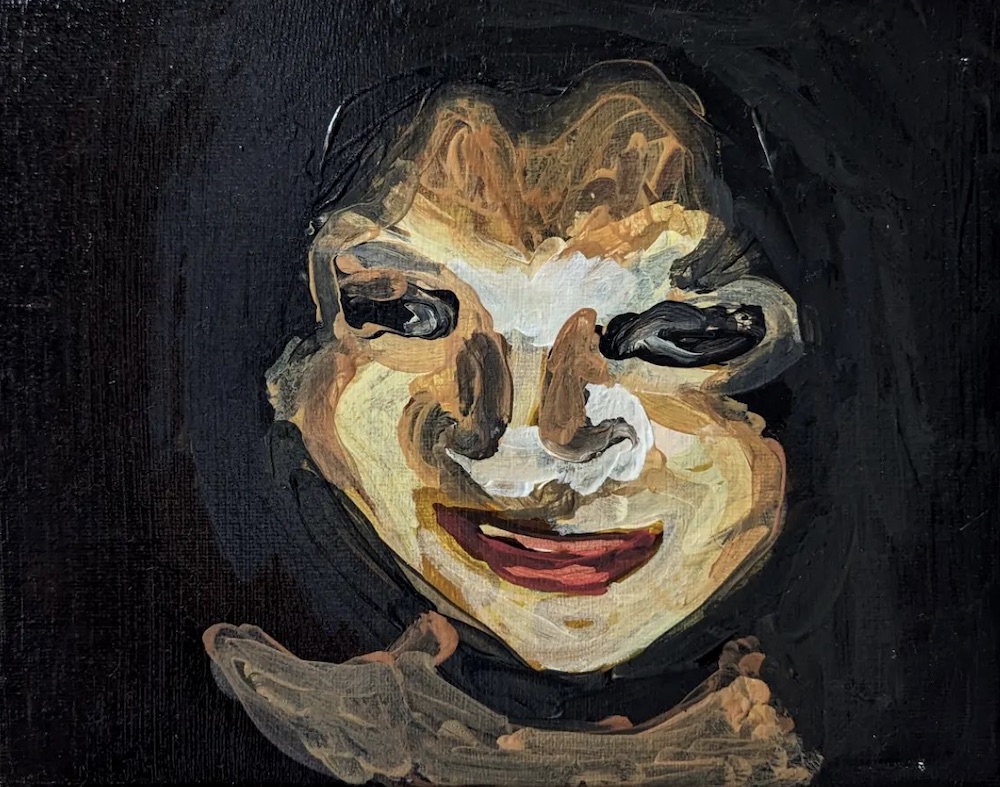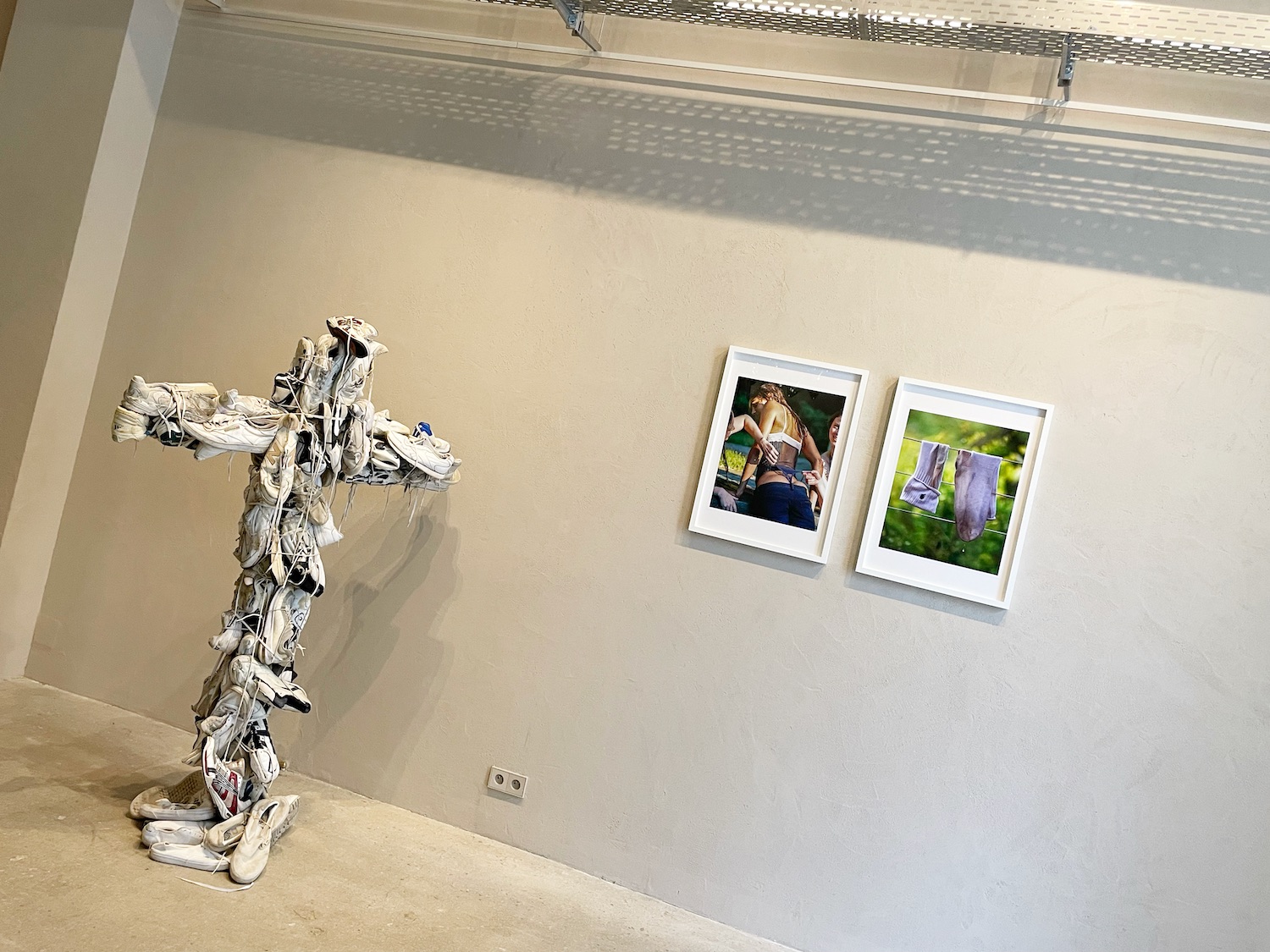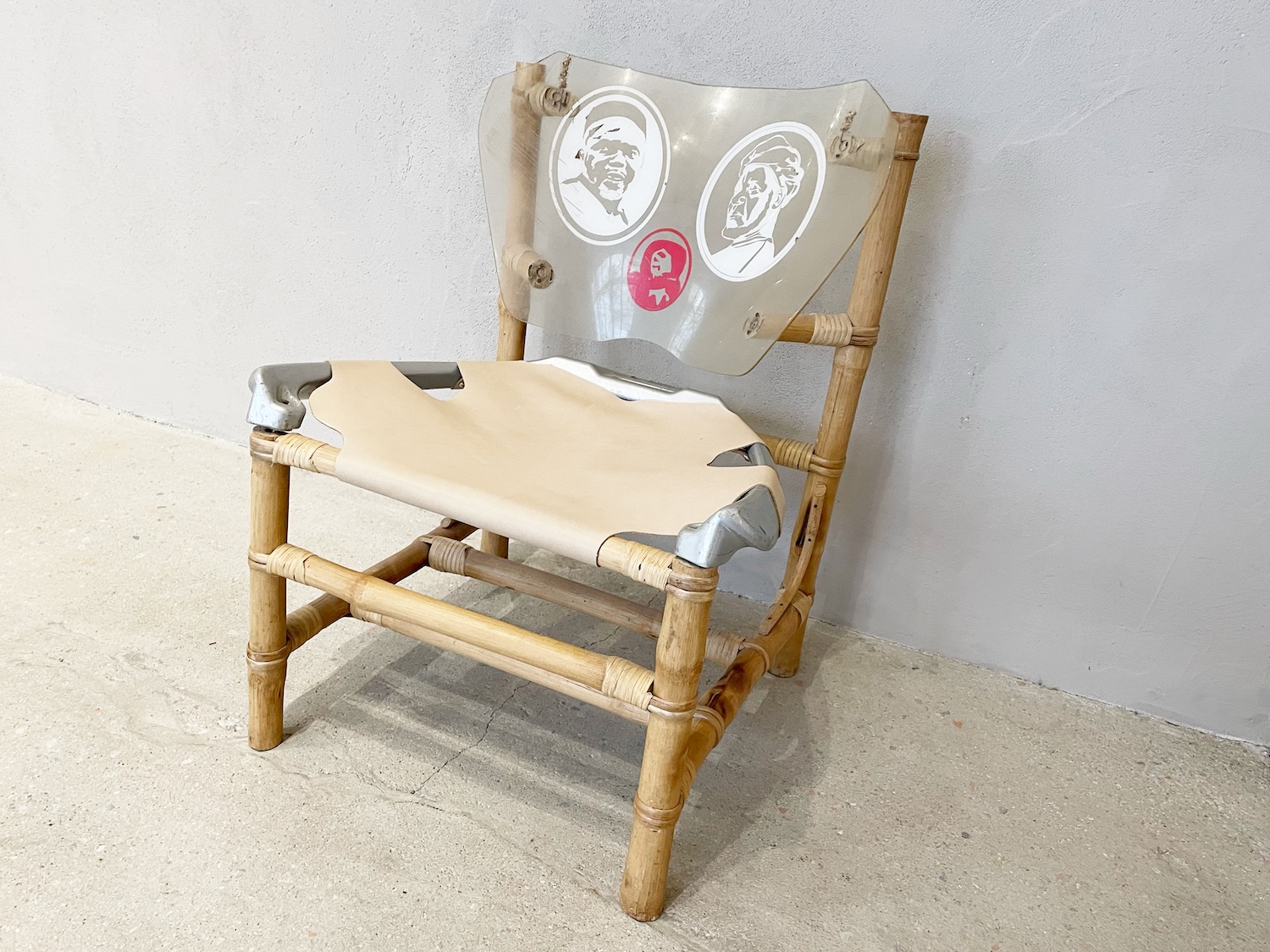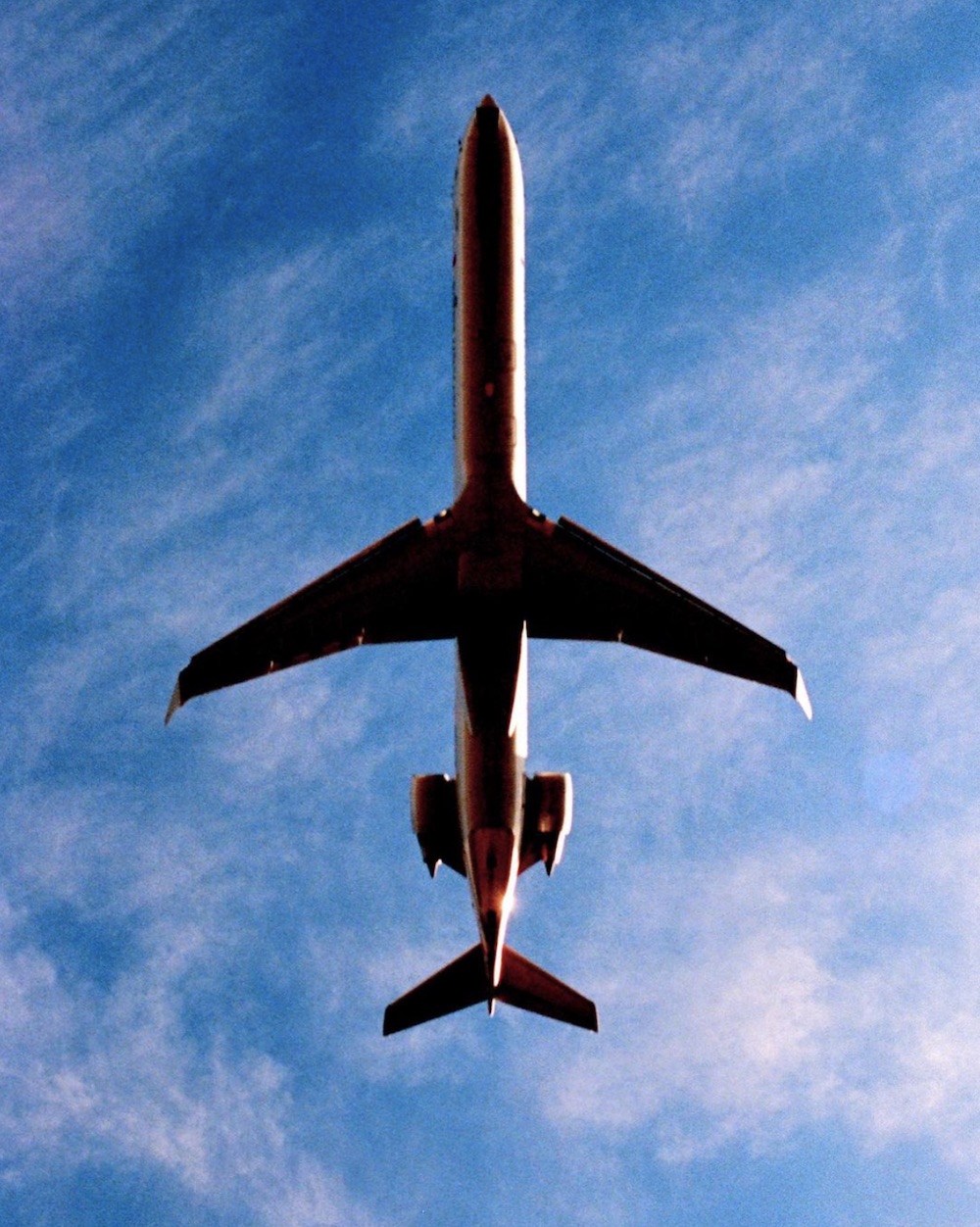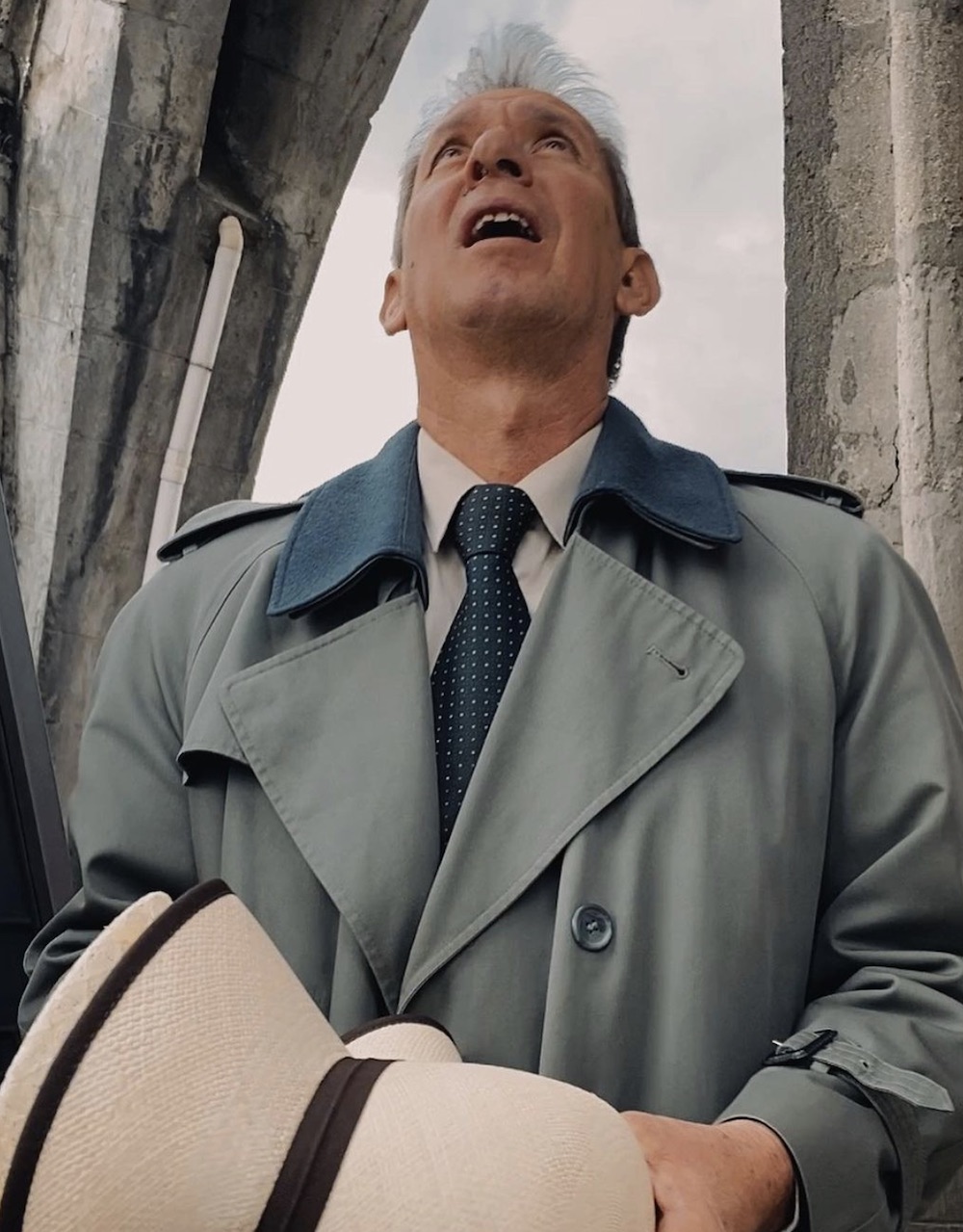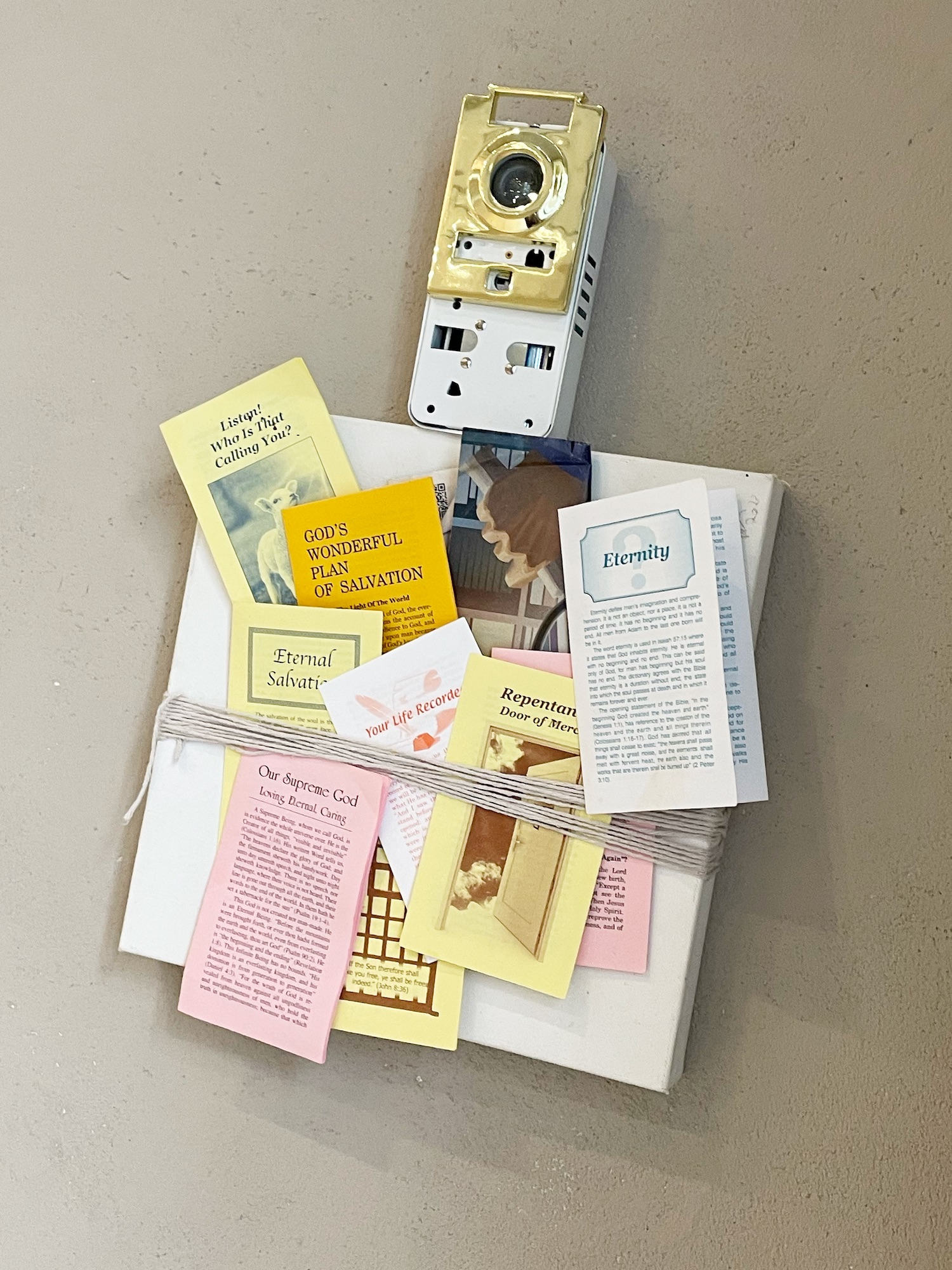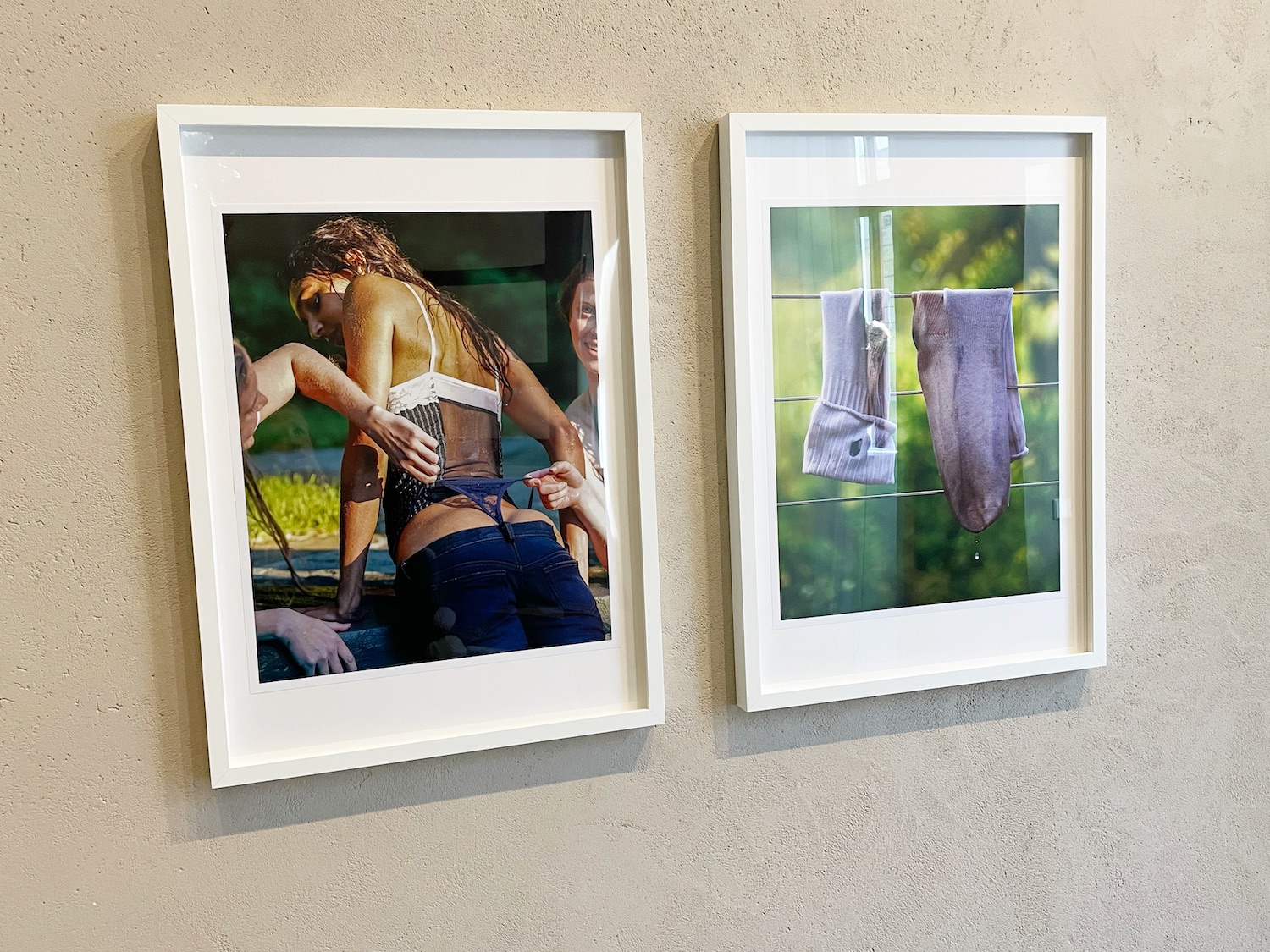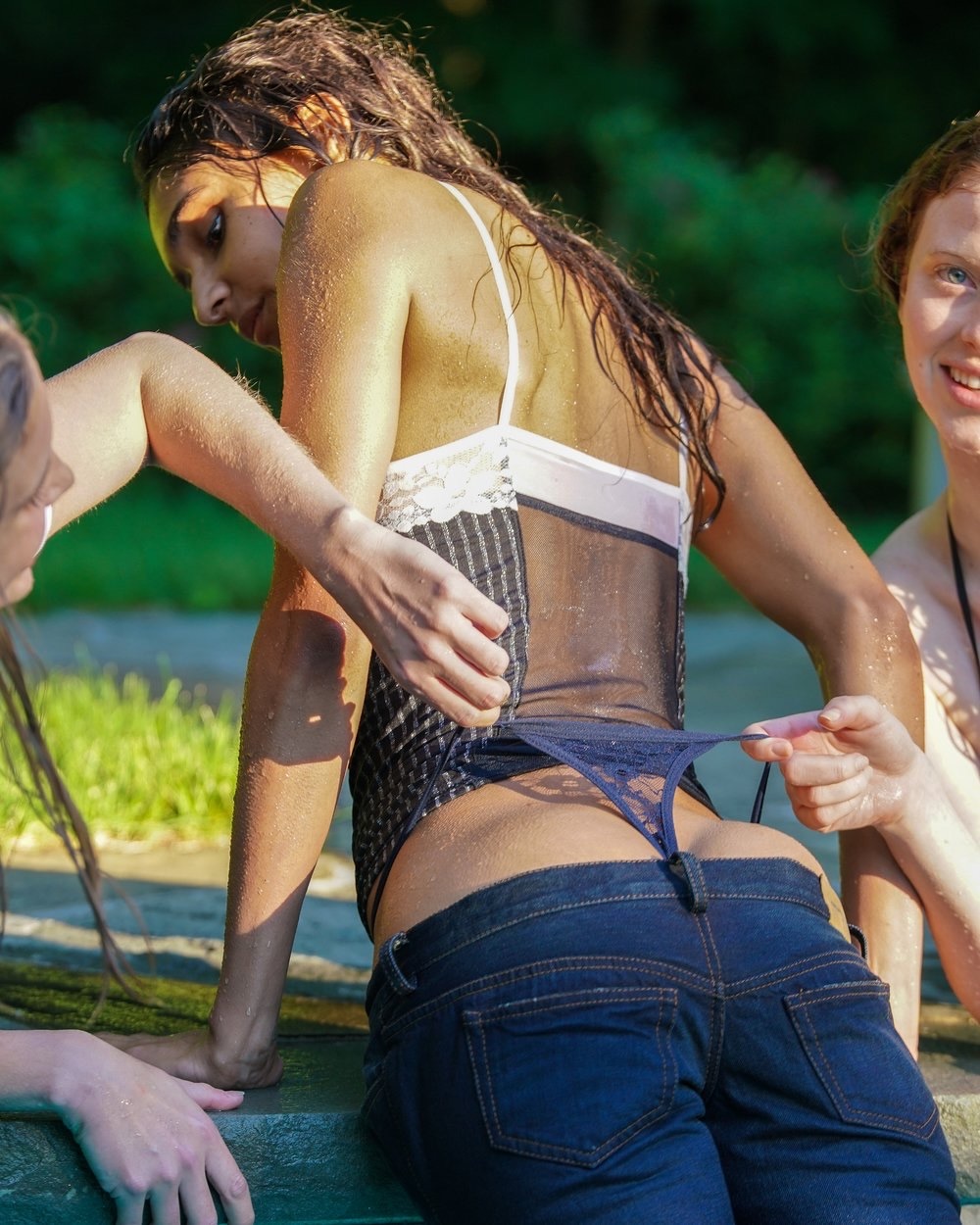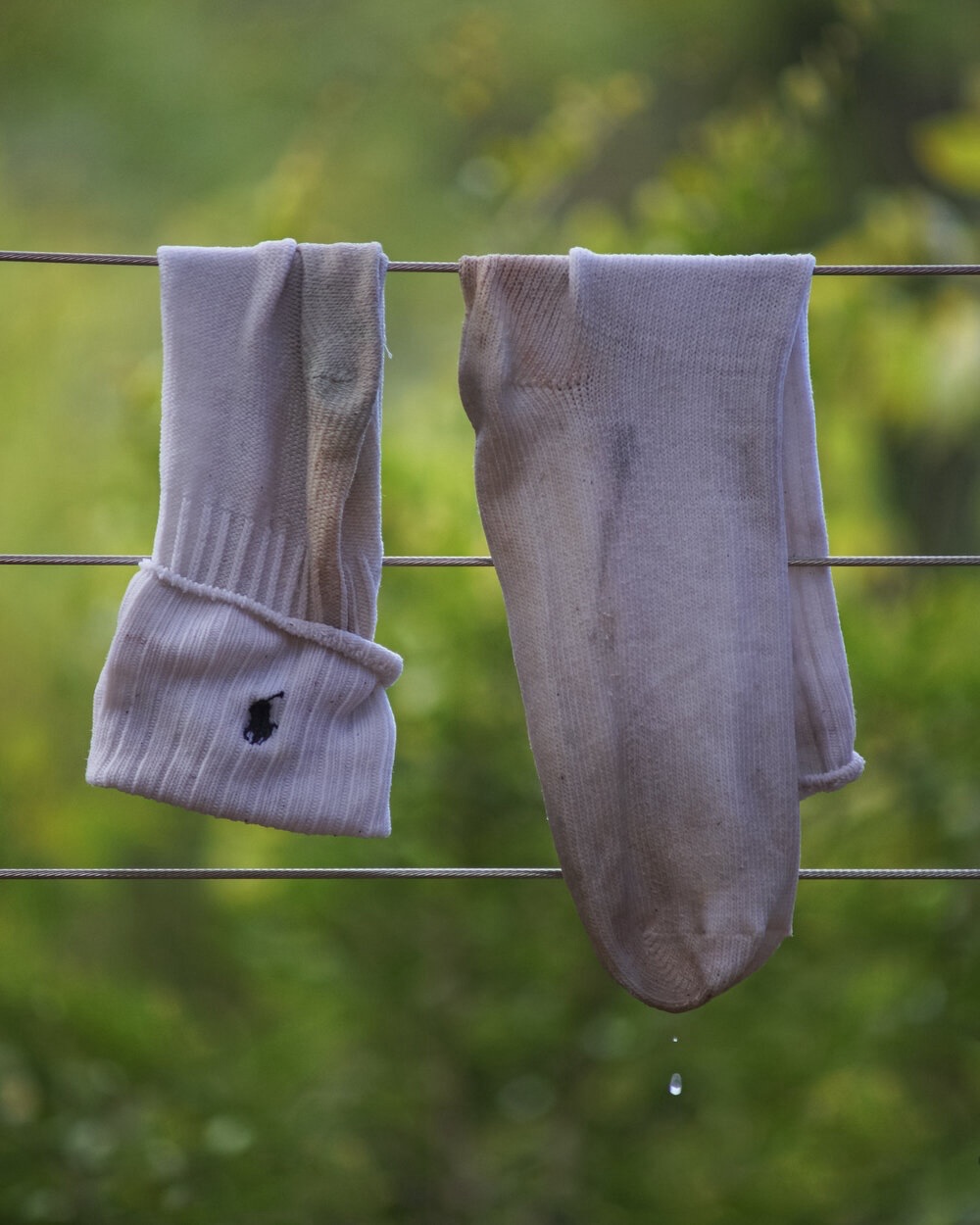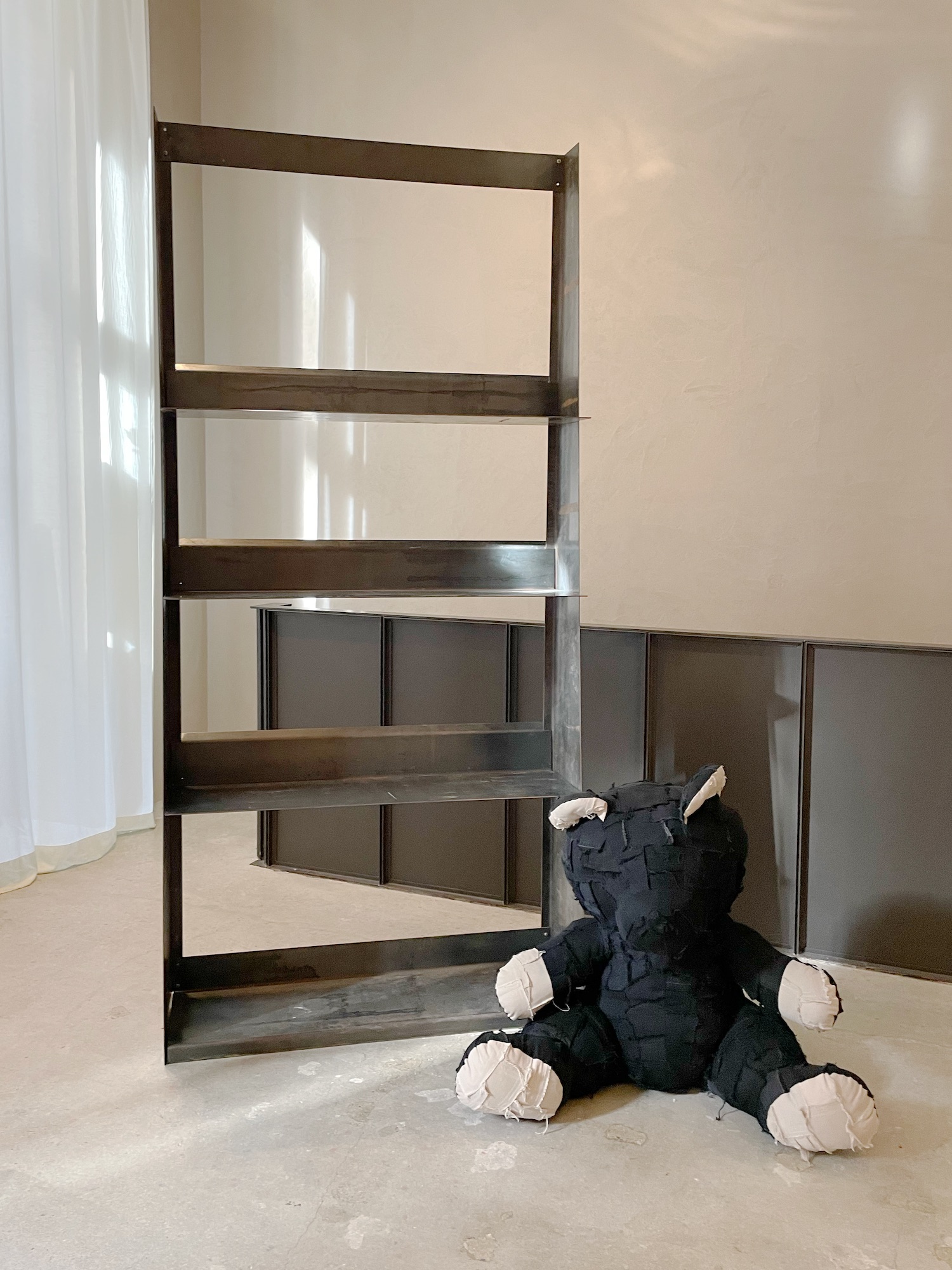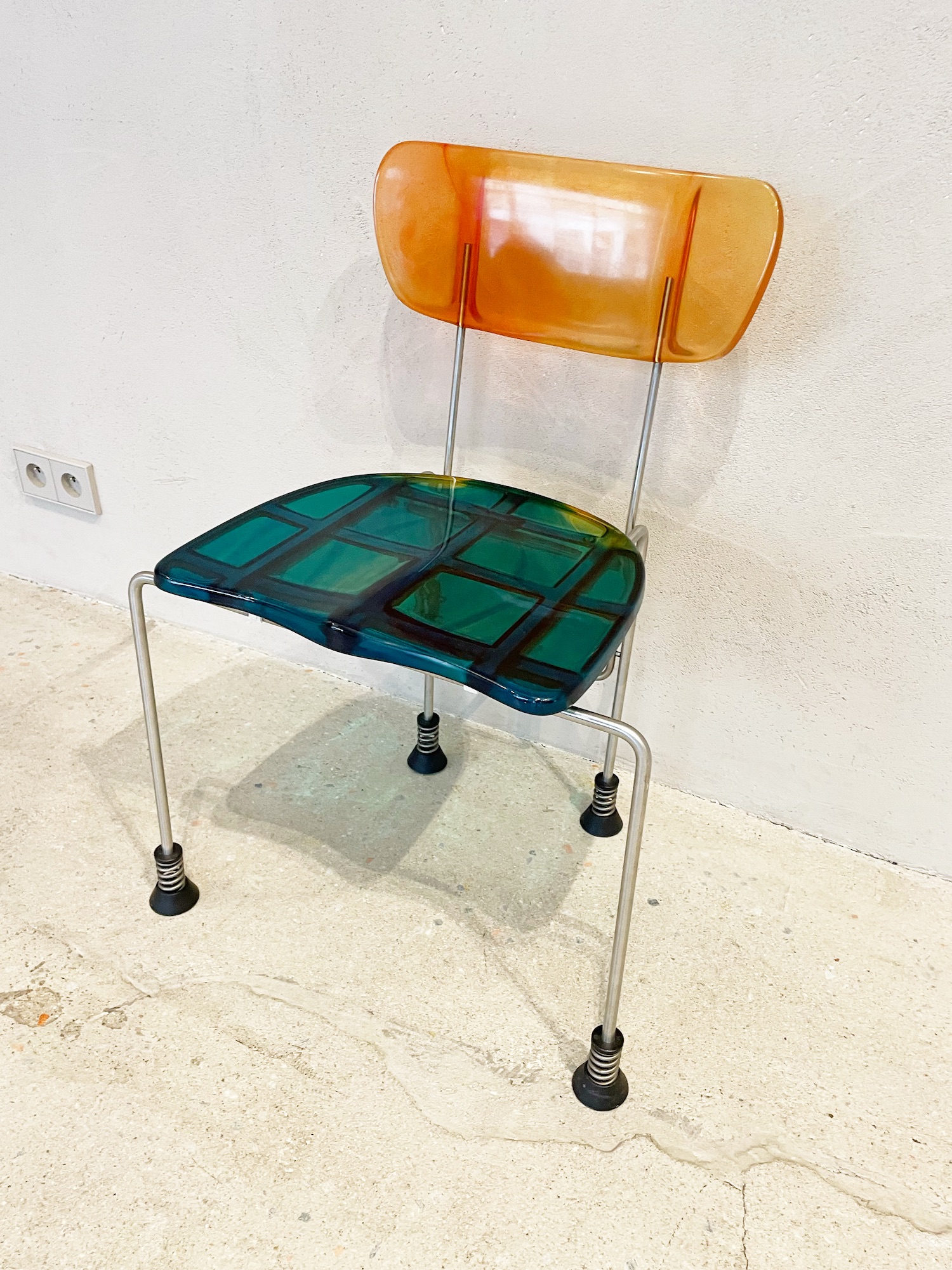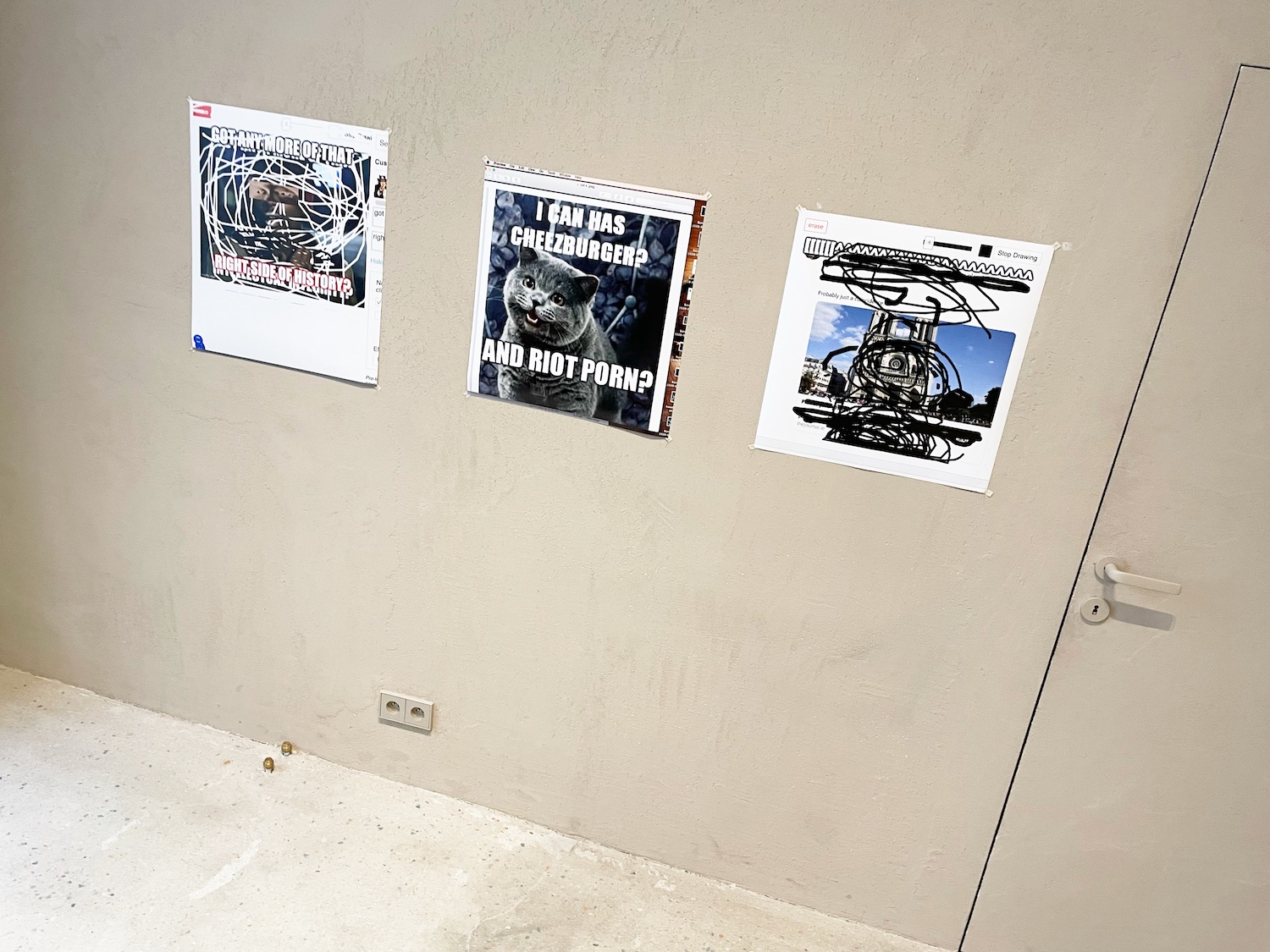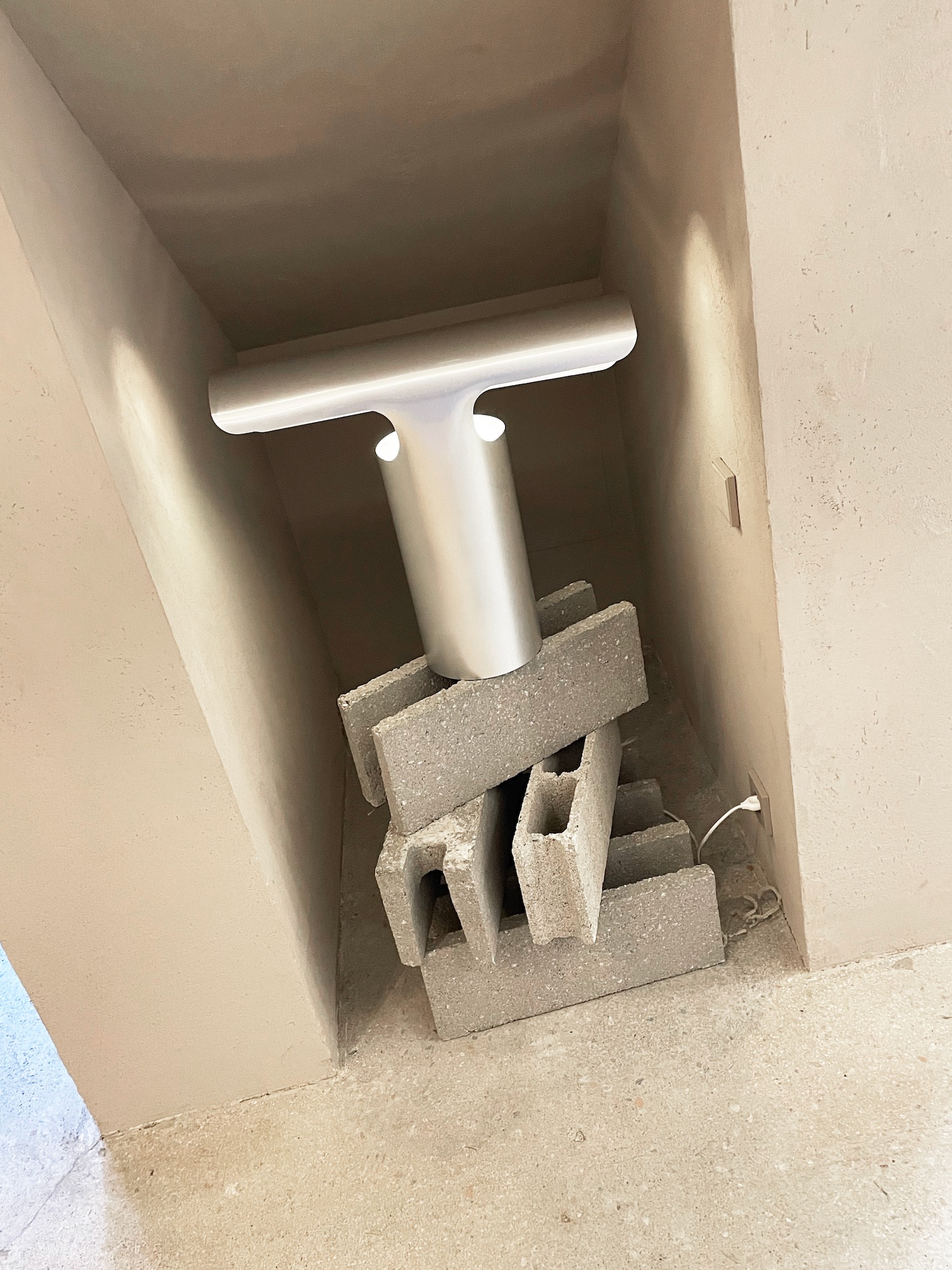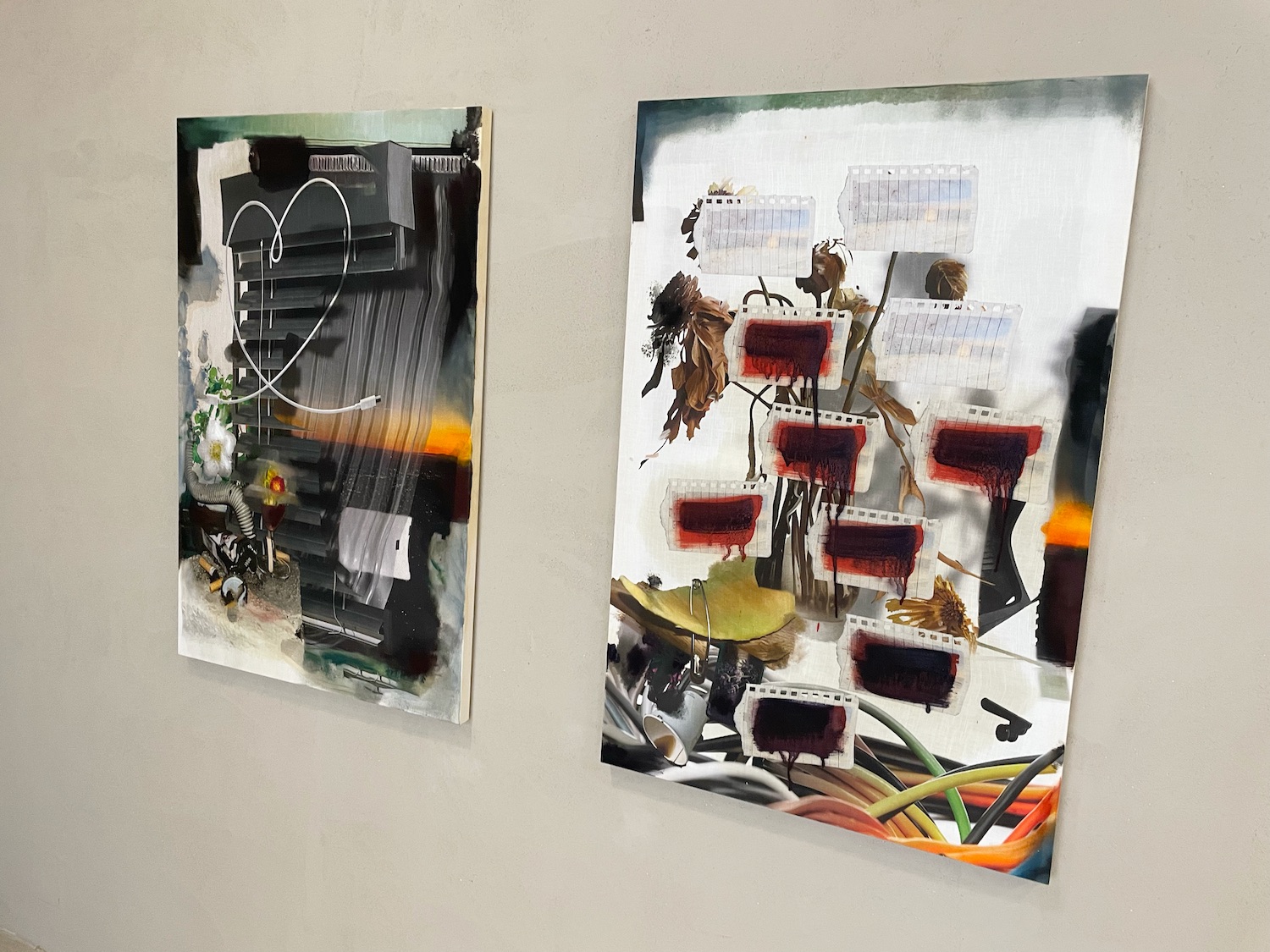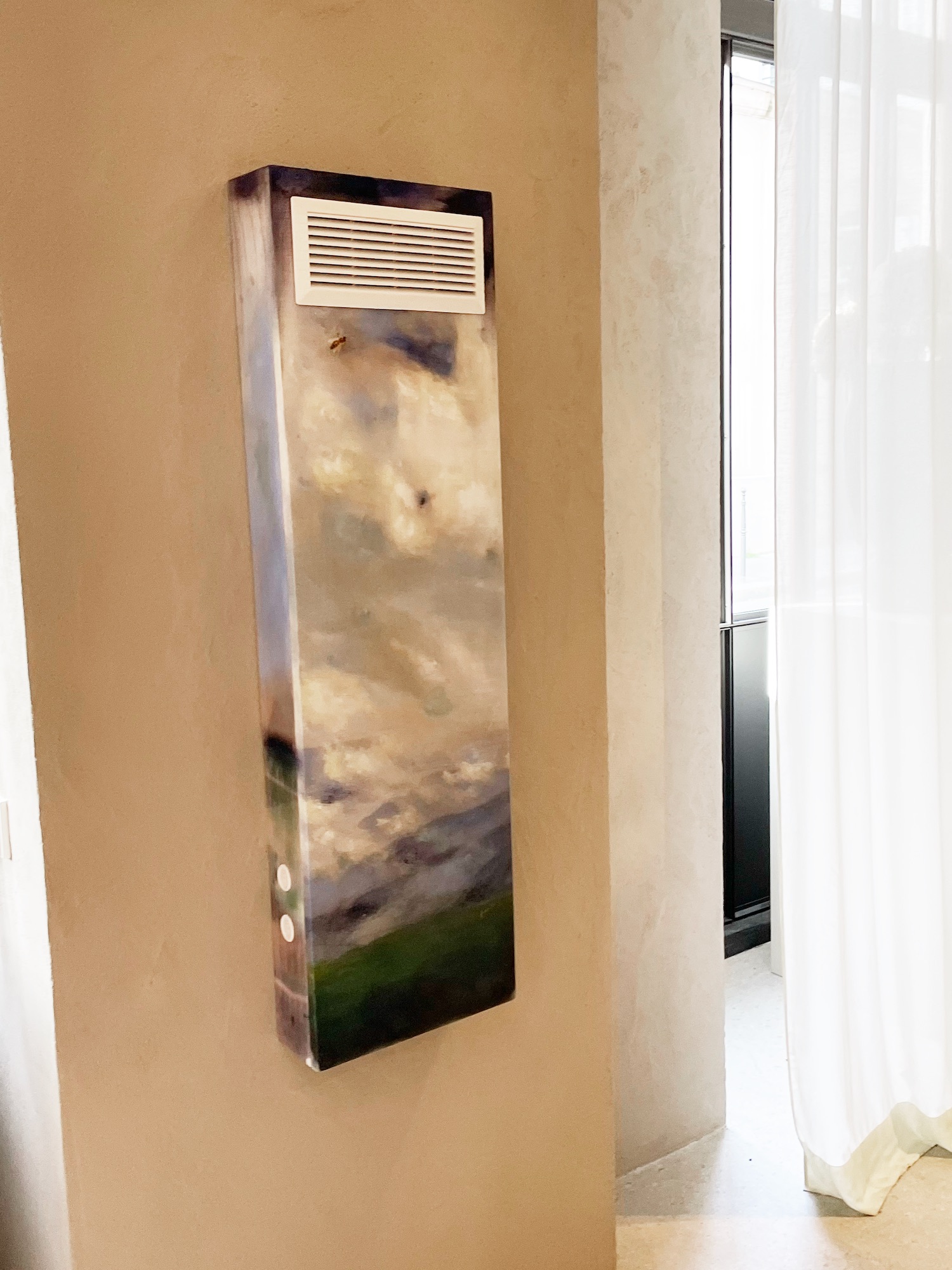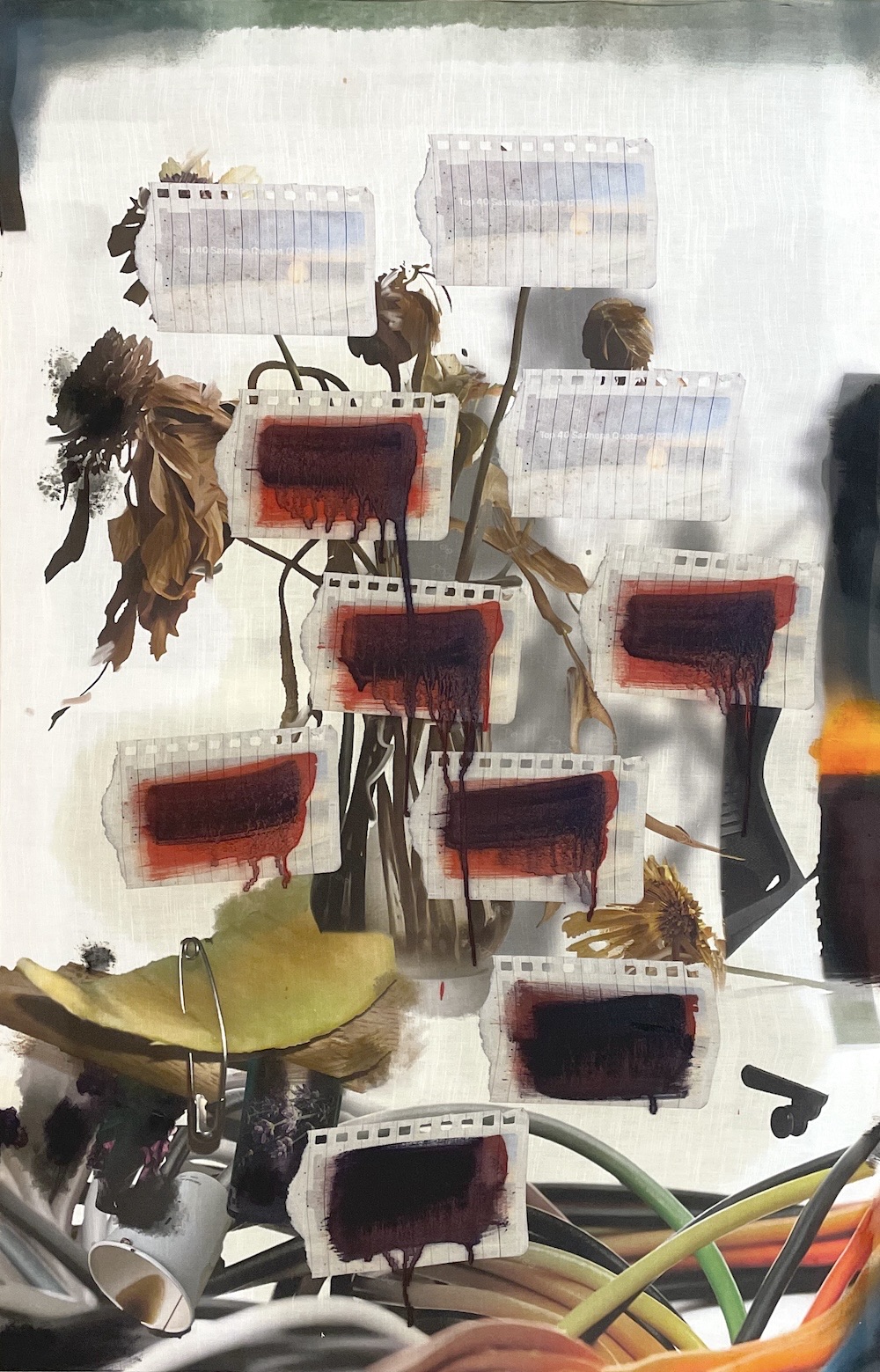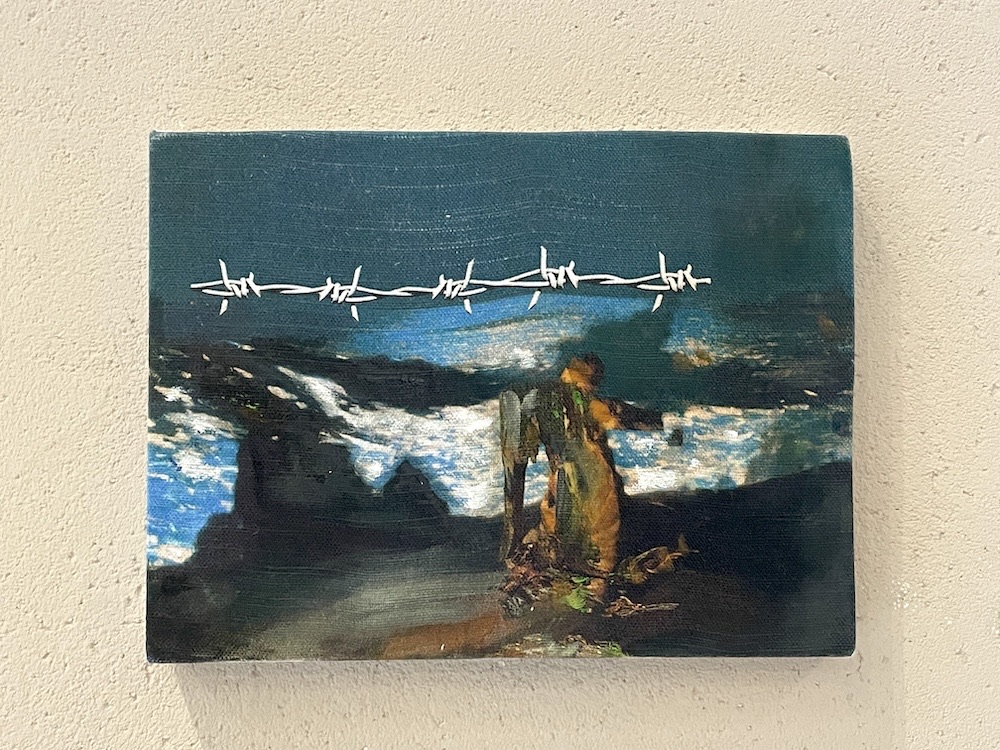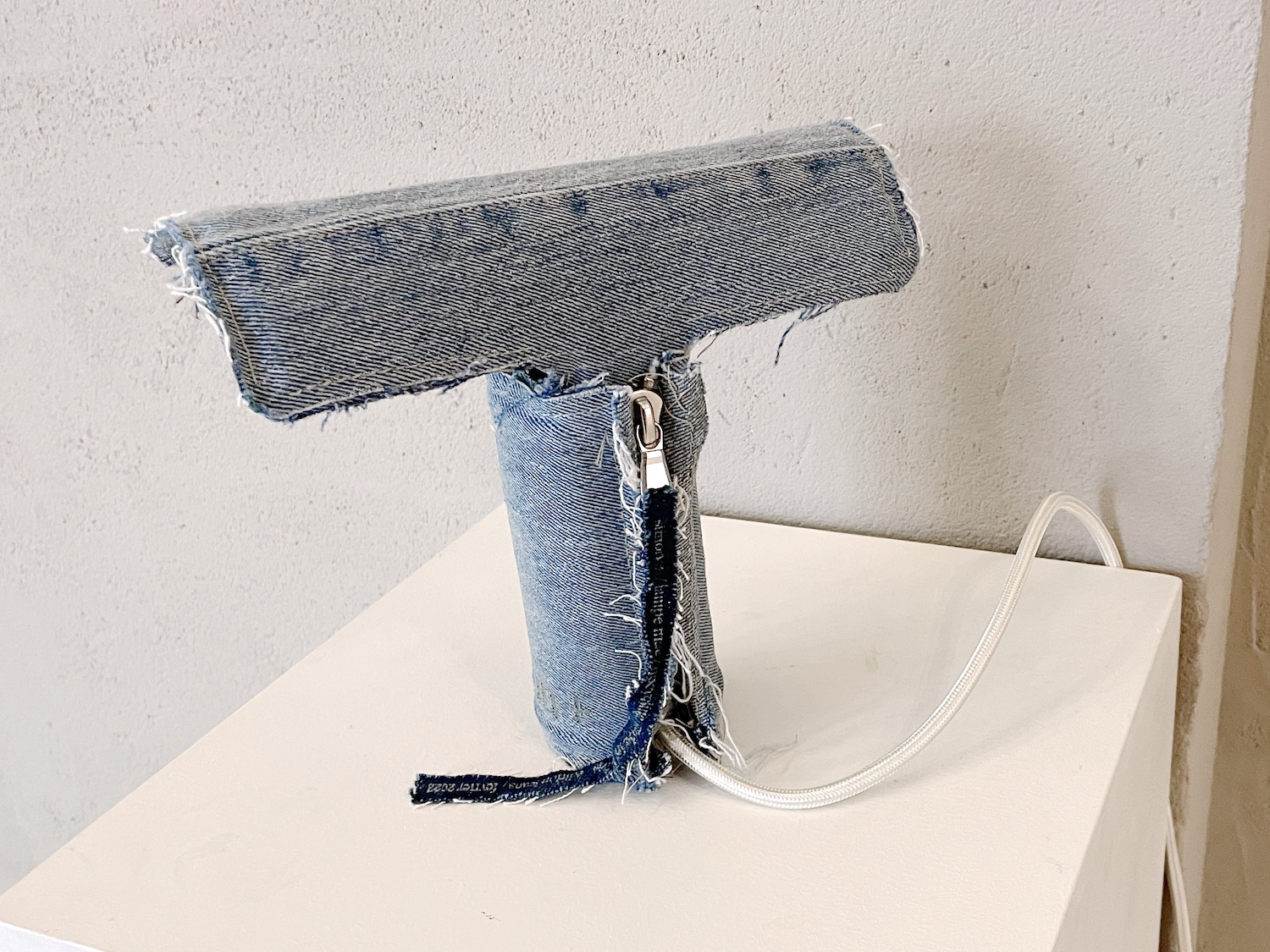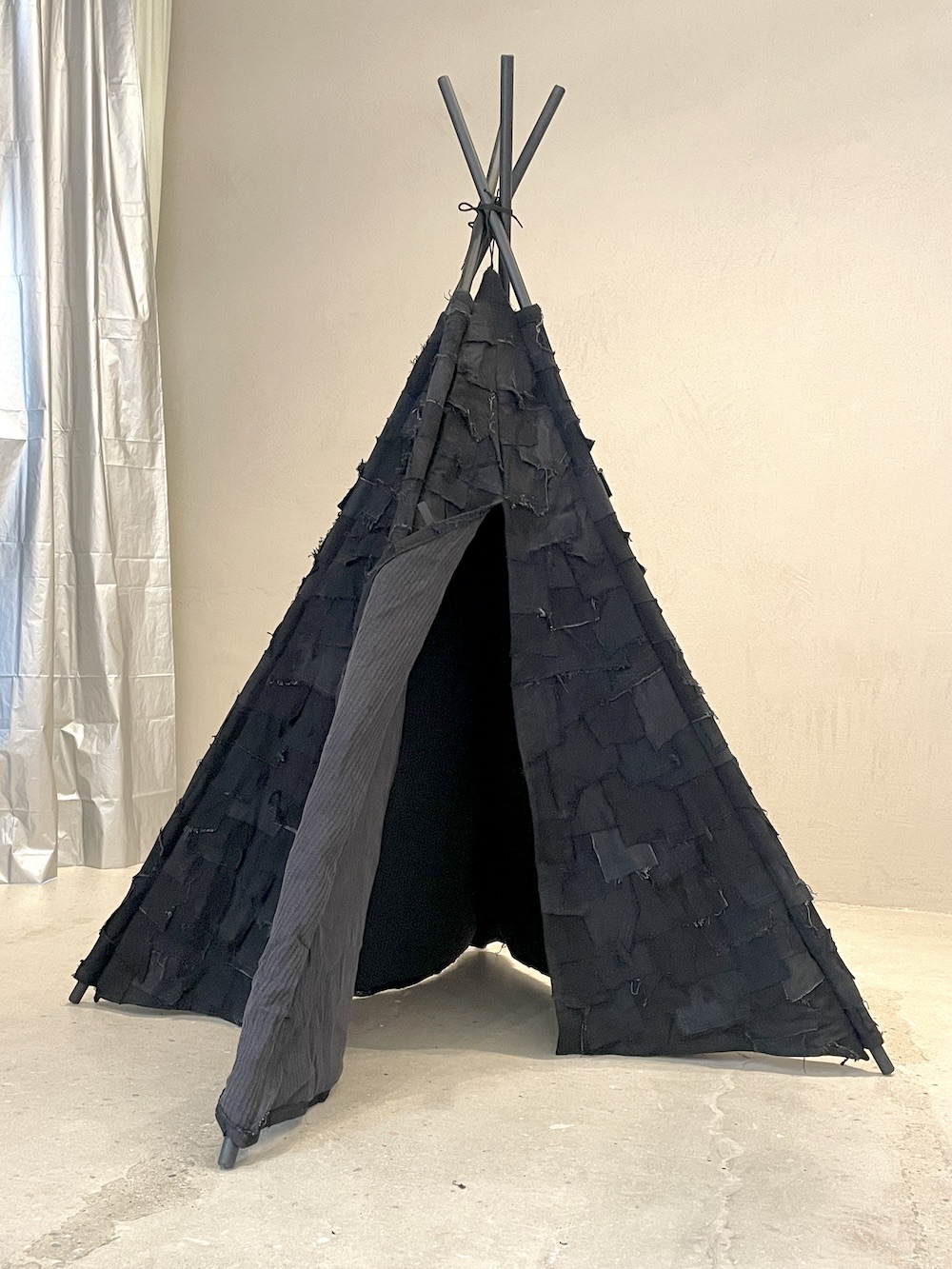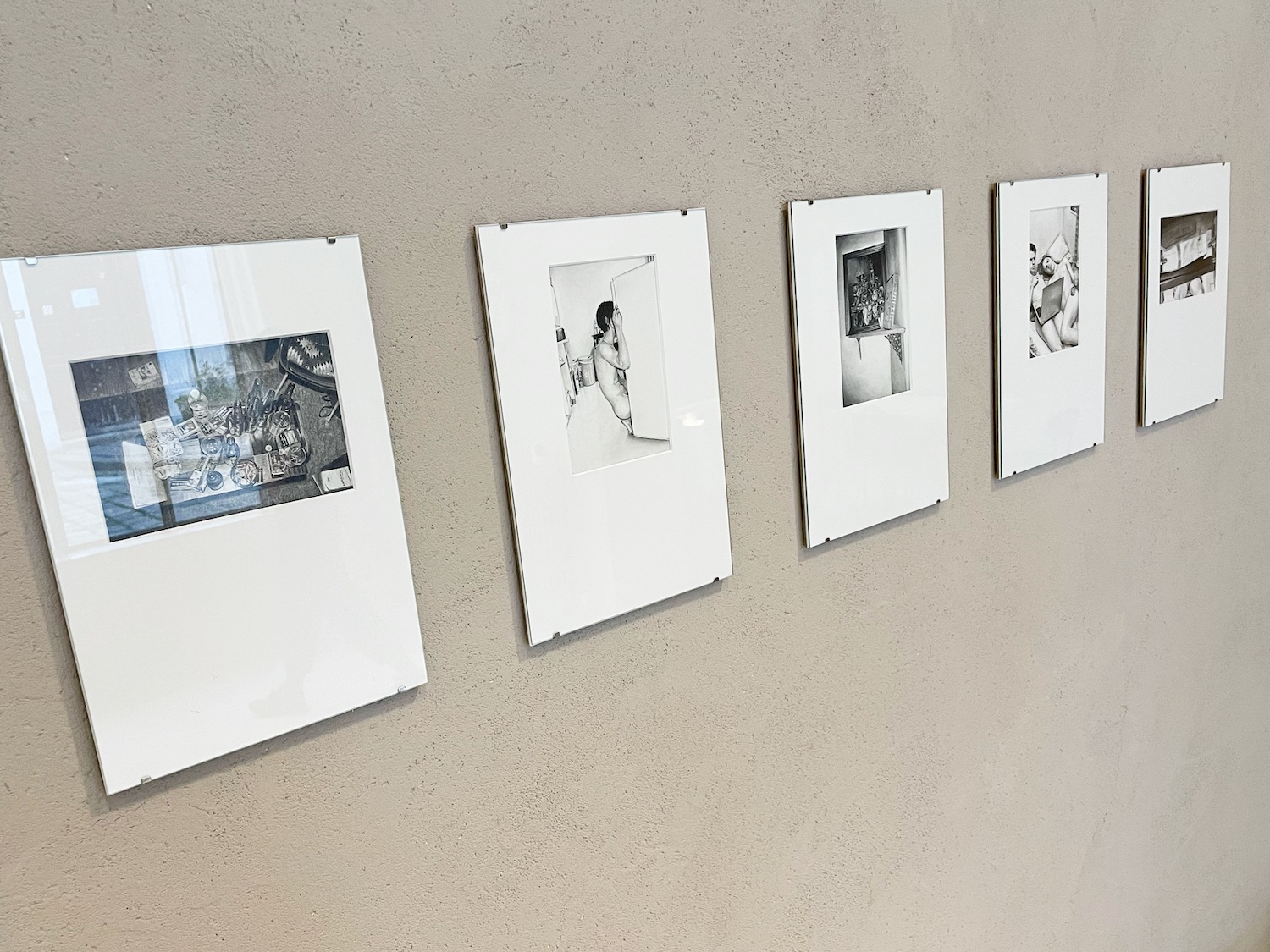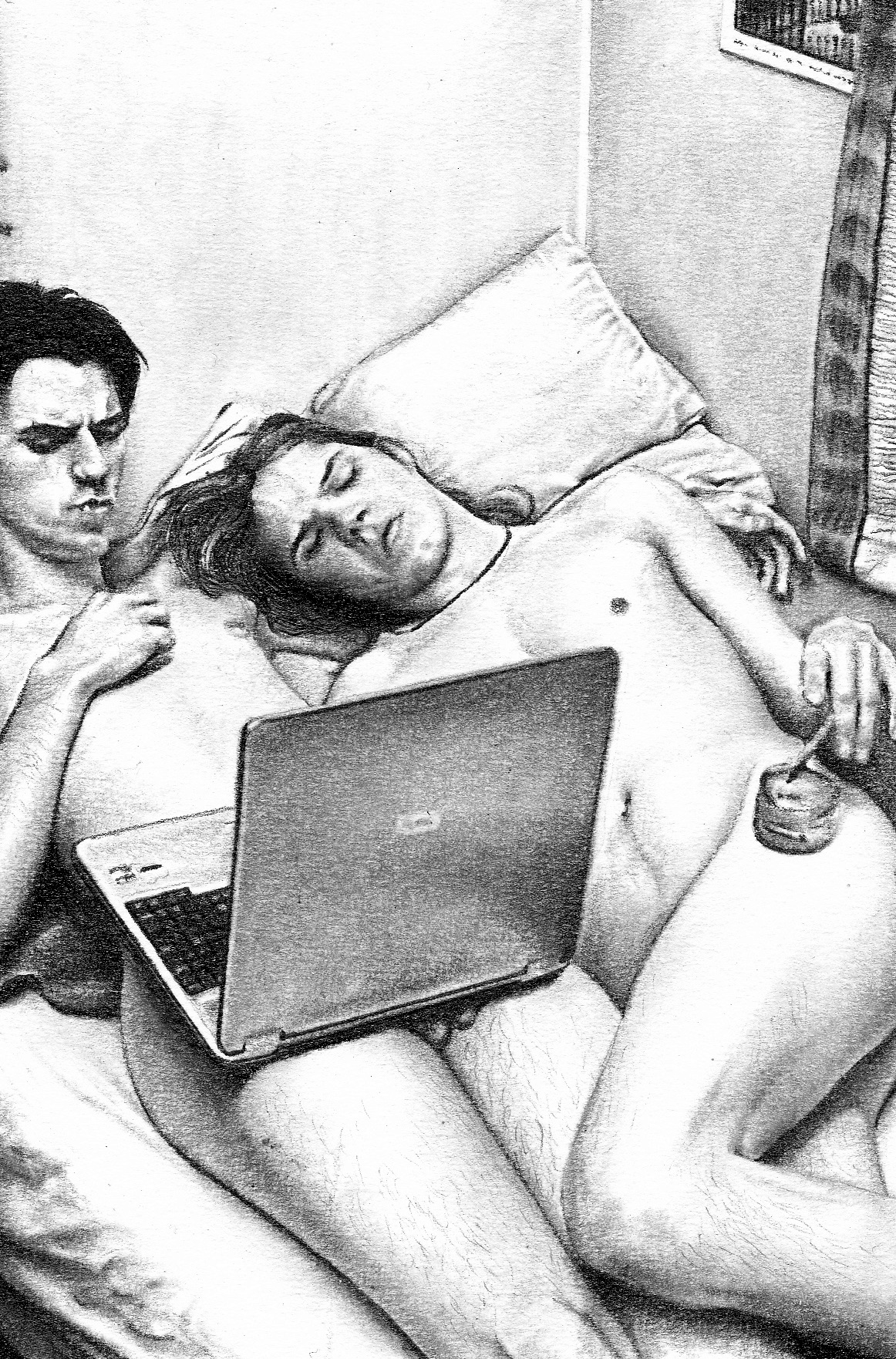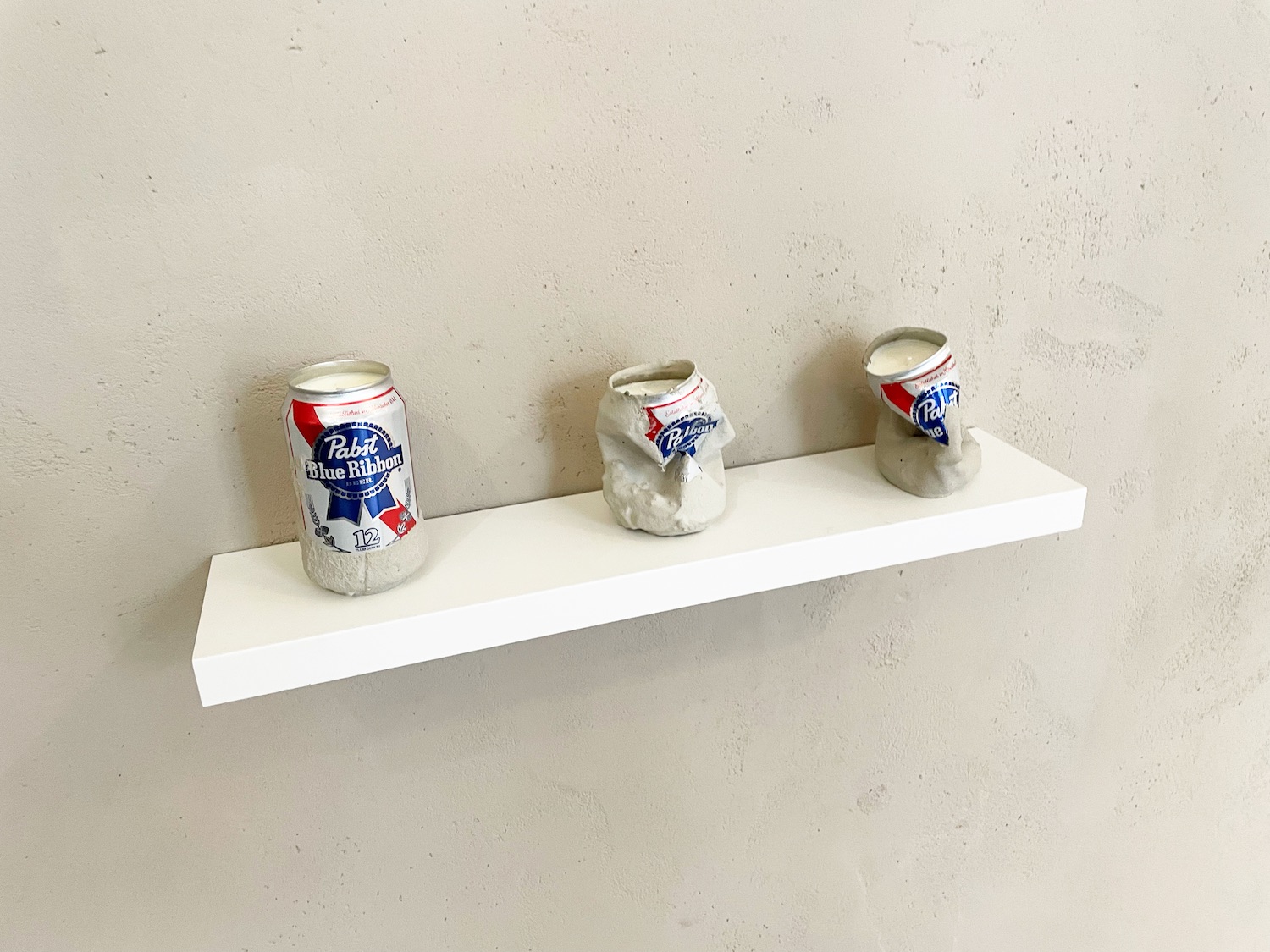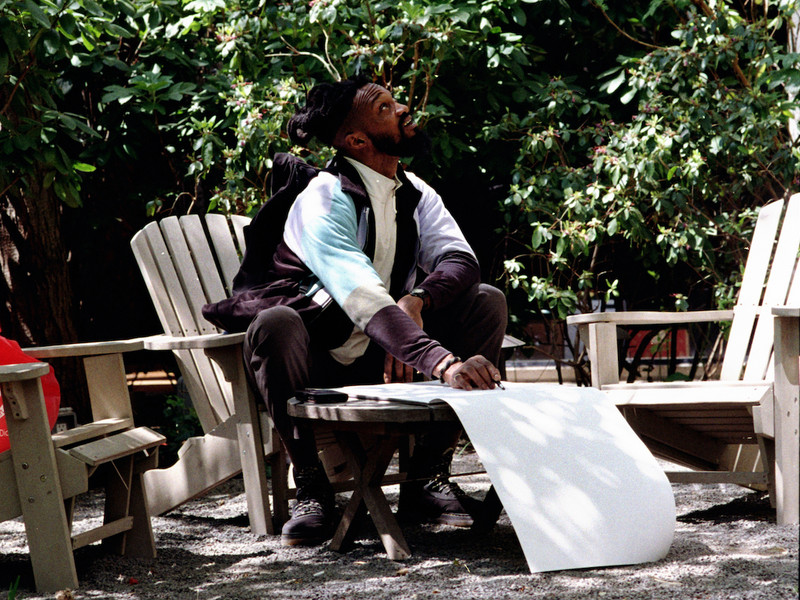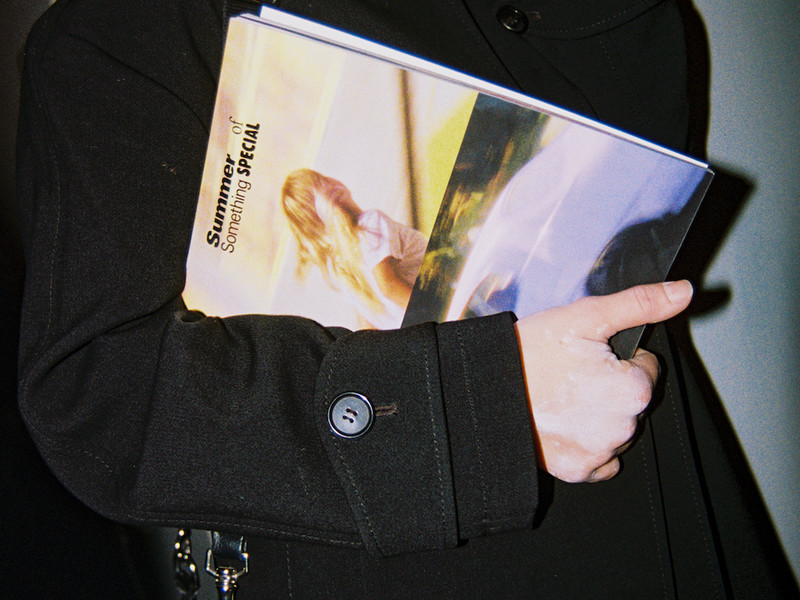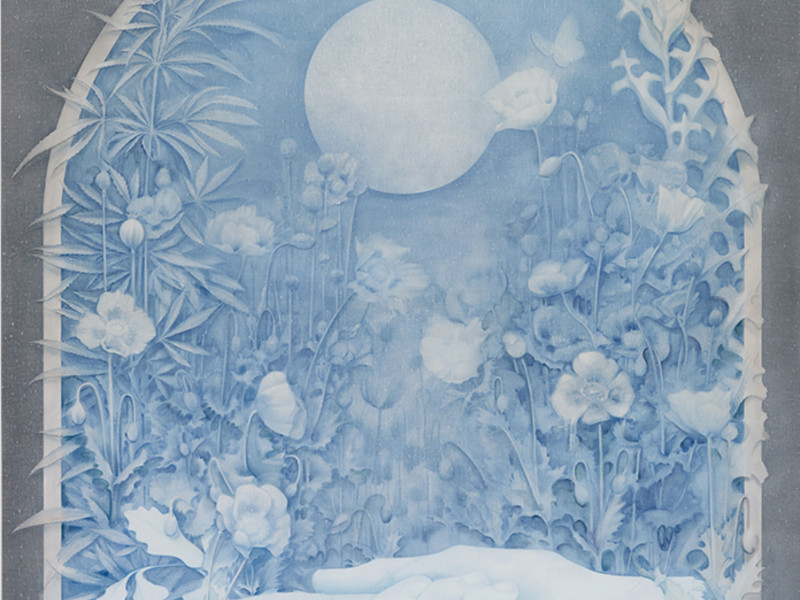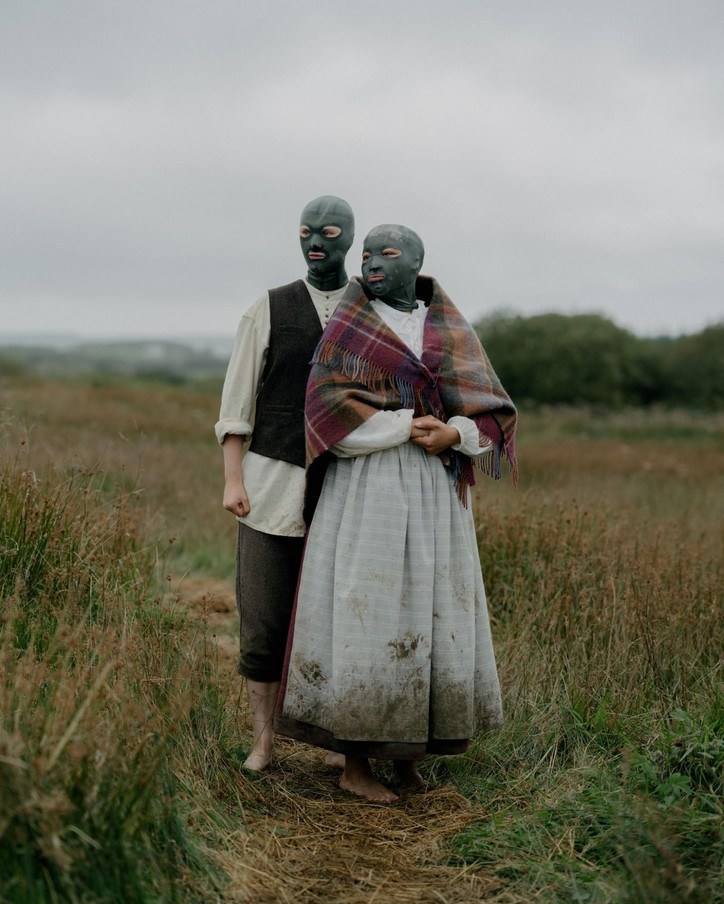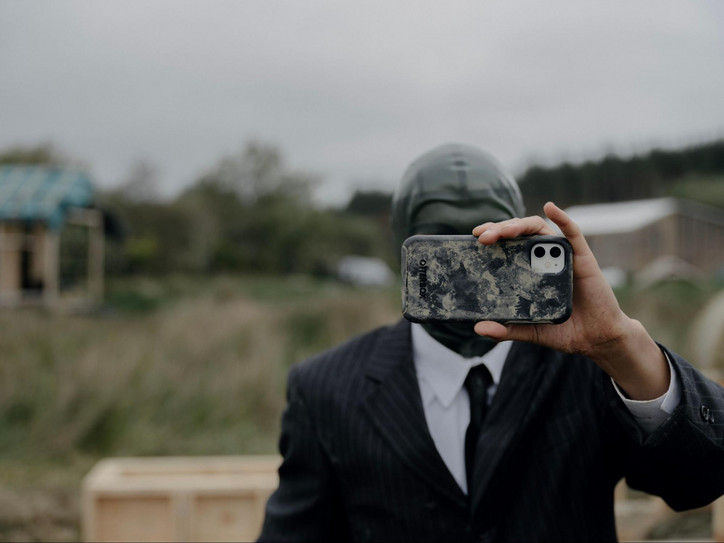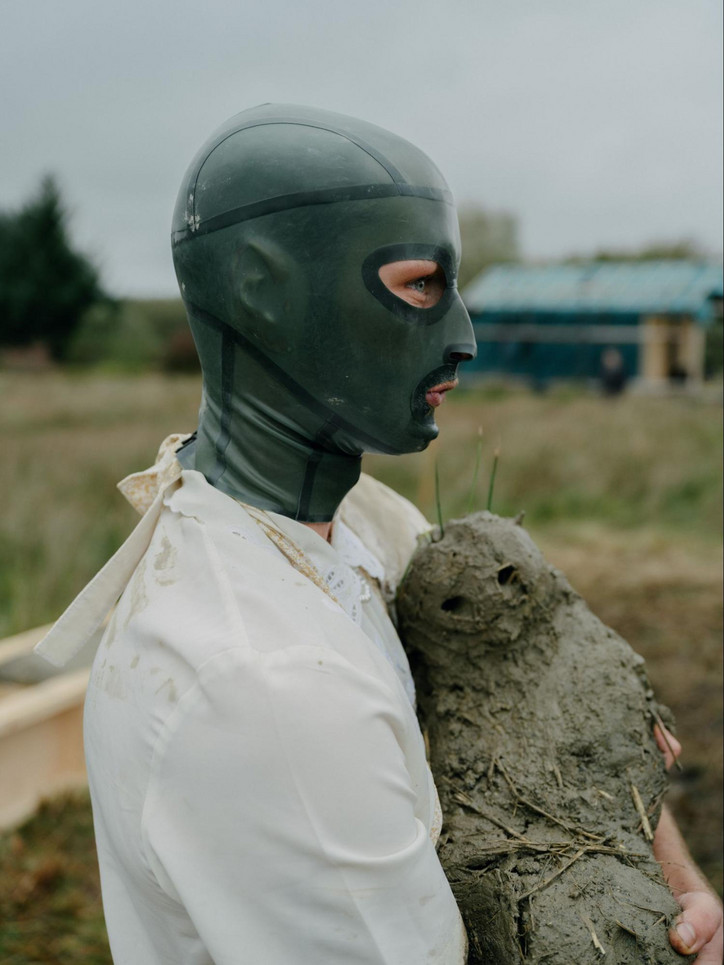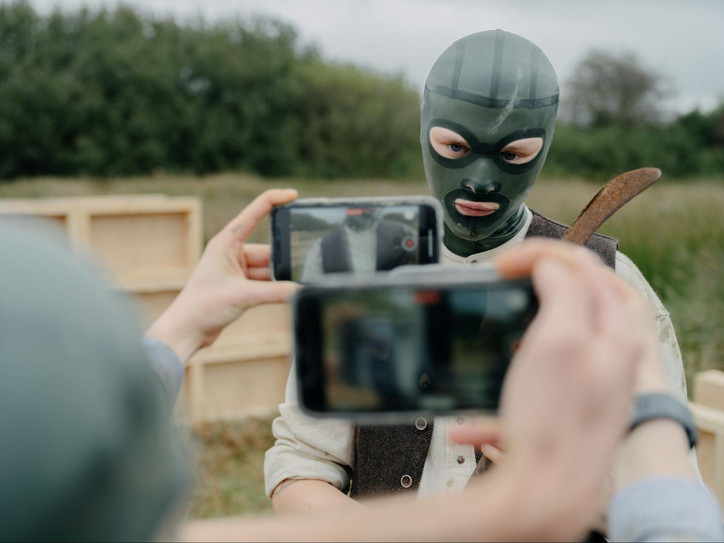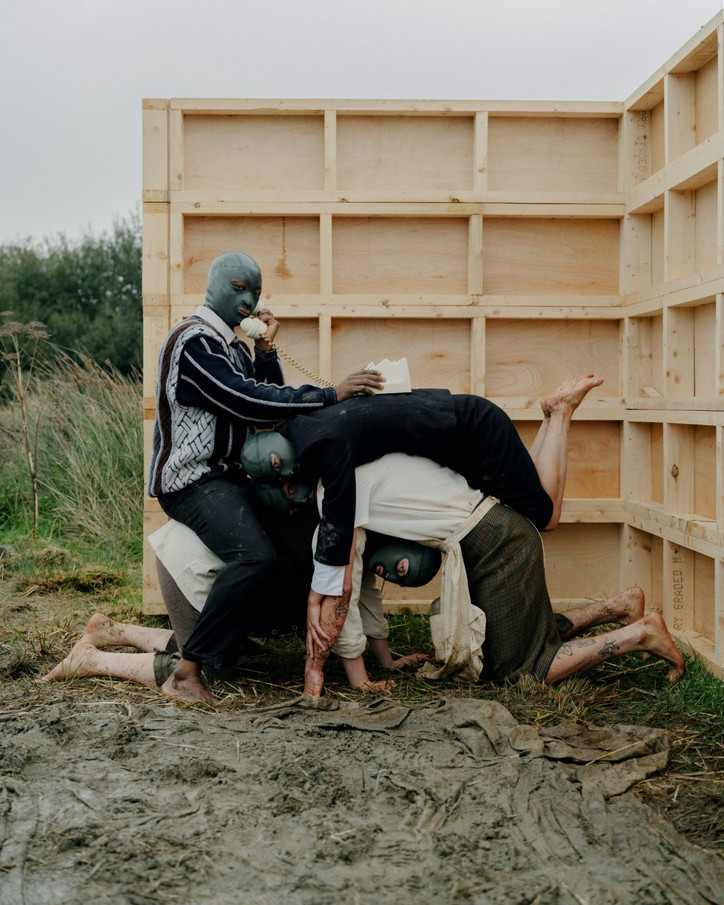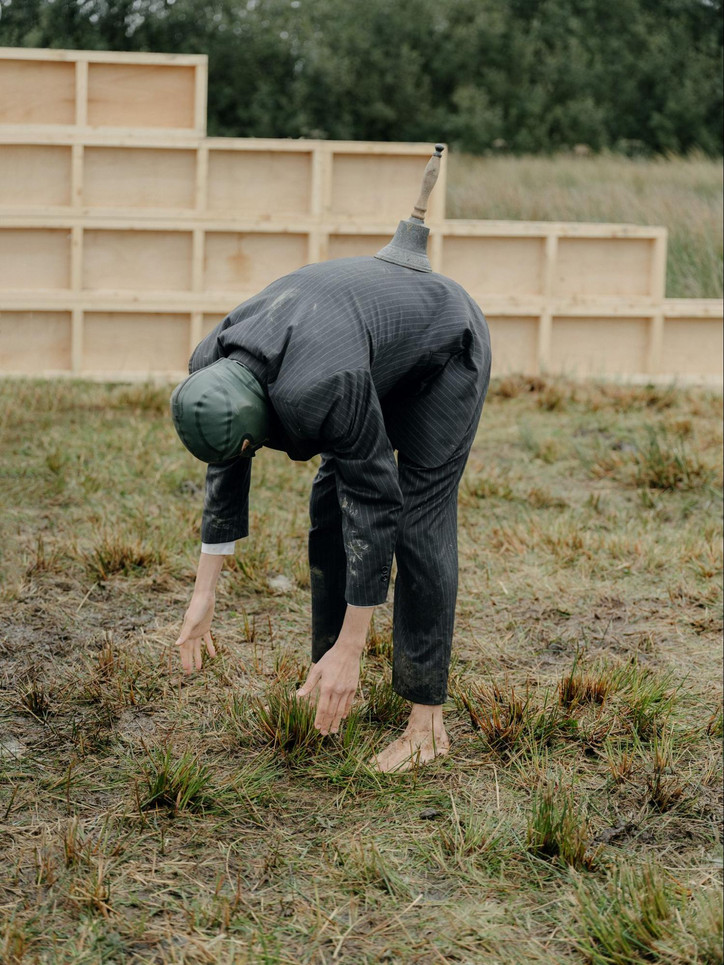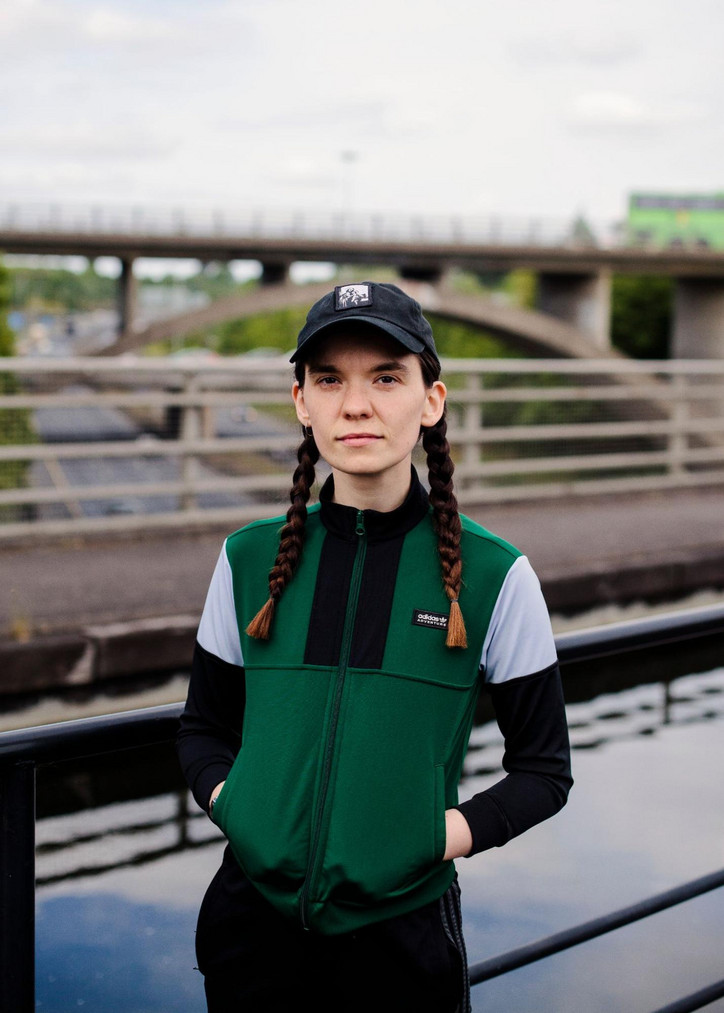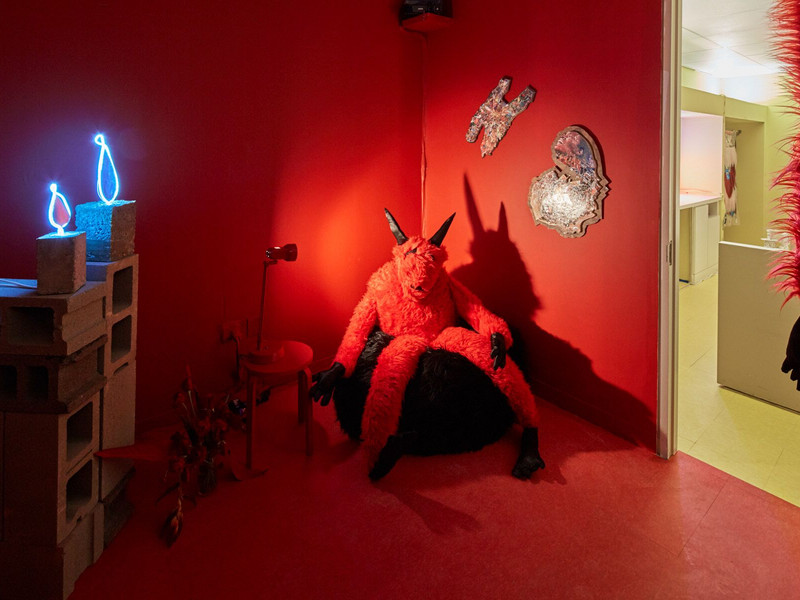Directed by Zhamak Fullad
Future’s inclusion, especially, is jarring. His music videos are shot in mansions, in satanic trap houses, in millionaire strip clubs. In “Pardon Me,” the all-star rapper is humbled, as if someone found some rare early 2000s footage of pre-fame Future radiating the freedom found in the anonymity of geeking with friends.
When the video ends, you’re a little stupefied by what you saw. It wasn’t a high-production, flashy, corny music video that we’ve become used to with some of the creative excess in music industry. It isn’t someone dropped into the industry with a bag full of money and told, “Go.” It’s someone with a honed-in craft and style. It’s someone who knows what they’re doing with a camera, as if the footage itself is a character with a personality. It’s someone who knows what the fuck they were doing, and was just waiting for a chance to flex. And you can’t help but wonder, “Who made this?”
At the end of the video, in marker-drawn lettering on a flashing collage of photos hand made by the video's creative director Raheem Hercule, the words “DIRECTOR ZHAMAK FULLAD” show on the screen, and rest there for a moment, as if to stare you in the face and say, “This is who the fuck made this video.”
I sat down with Zhamak Fullad, a fellow Iranian, born in Tehran and based in Los Angeles, to speak at length about her journey. She worked for years as a behind-the-scenes photographer for some of the biggest artists in the music industry including Drake, J. Cole, and Migos and has done editorial shoots with the likes of Rico Nasty. After years of crafting her skills and hustling, she landed the director spot for Lil Yachty's "Pardon Me" after a friend put them in touch.
She is the first brown woman to direct a music video for Future or Lil Yachty. We spoke on her move to America, the friction she experienced in western schooling, Iranian culture, and her struggles and ultimate triumphs in Hollywood. Zhamak also has many thoughts on how other brown girls can do it too.
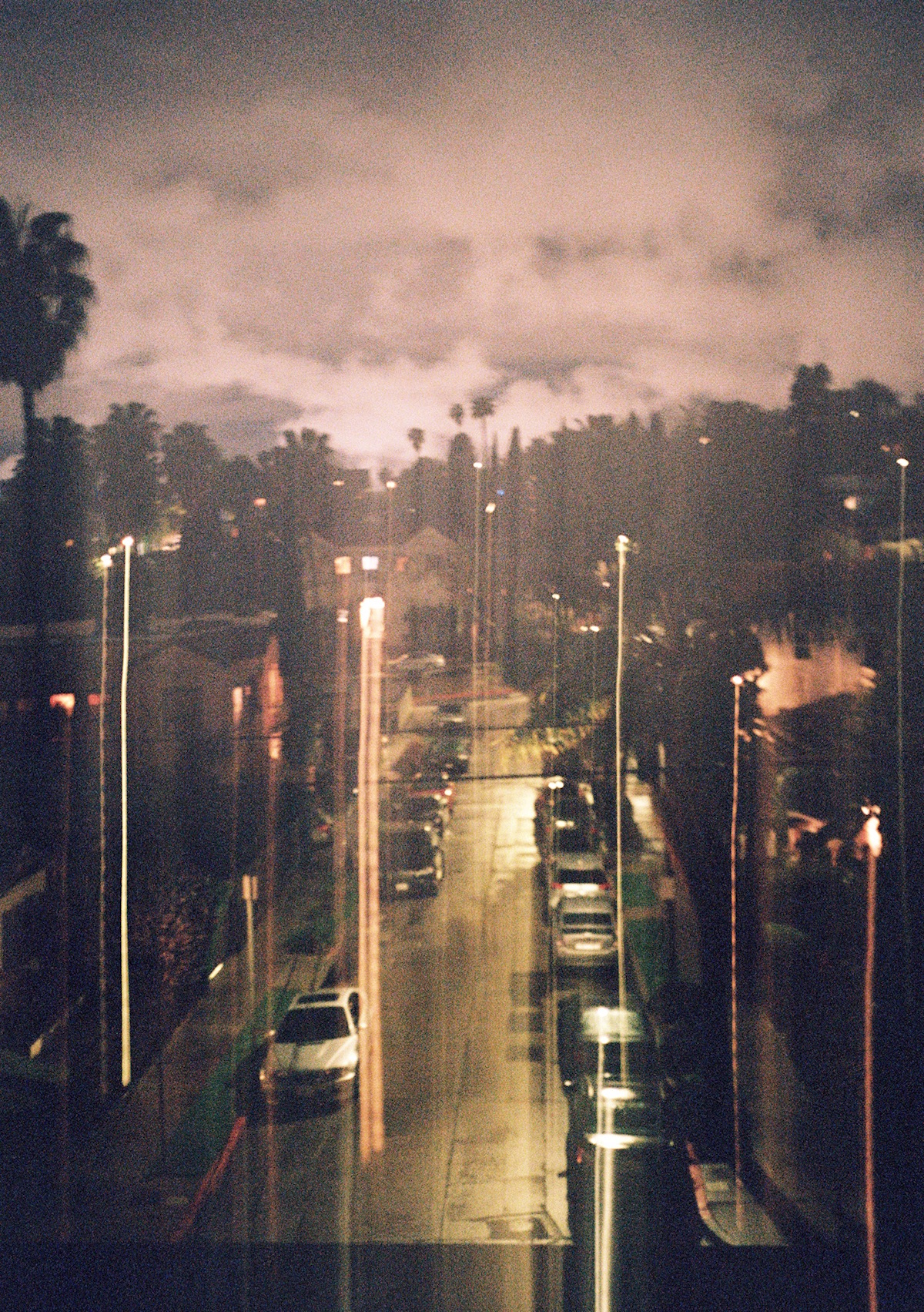
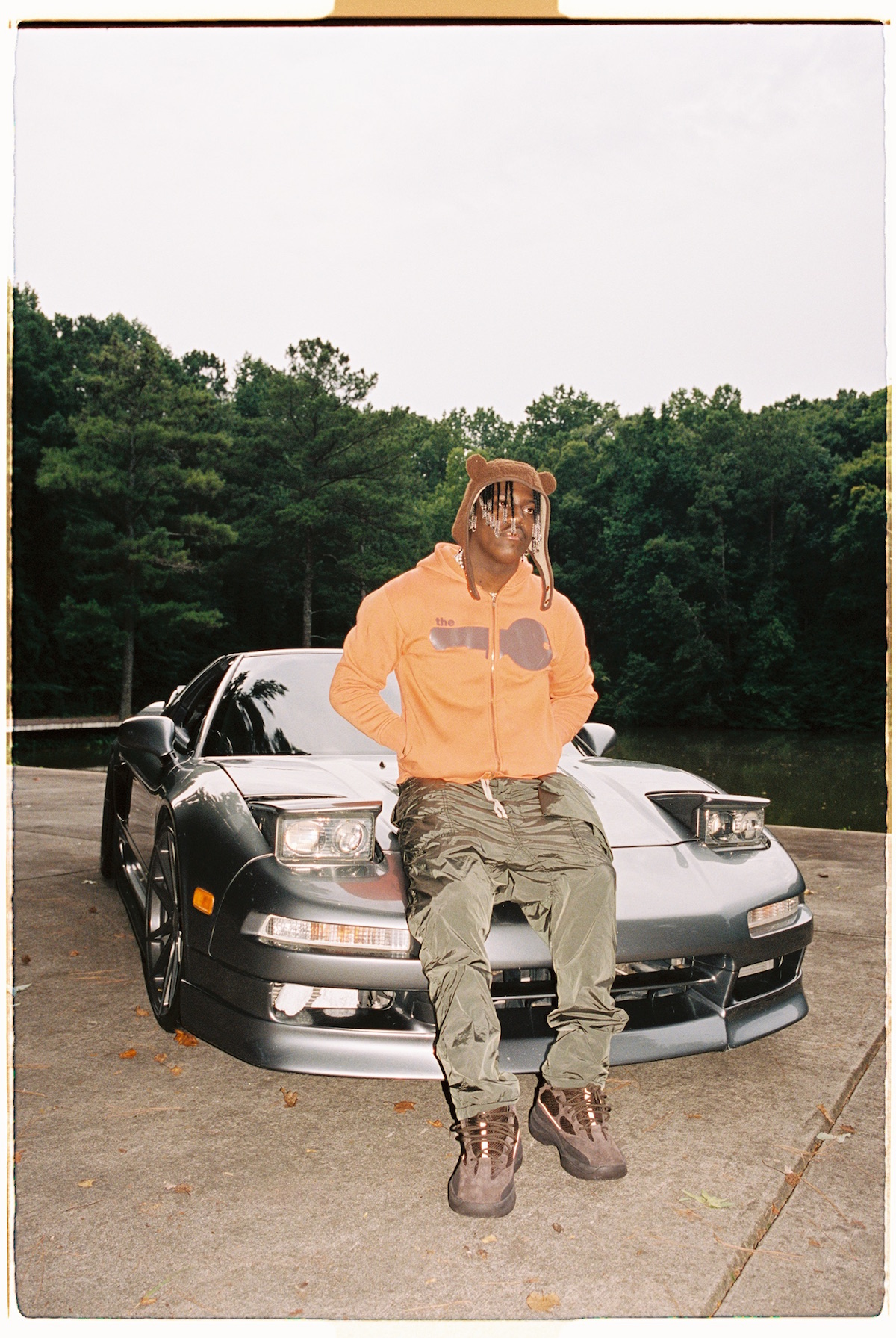
What is up, dude? How are you?
Nothing, I just had like five phone calls and I was like, ‘I gotta go.’
What were the phone calls about?
These edits! Drowning in work. It's great.
How have you been feeling about the video?
It's been cool! You know, it's not cinematic like I made a short film. It's everything else about it. The vibe, it’s me. The style is close to what we wanted for once. Henry went crazy on the edit and Raheem's guidance and direction with the whole project, from coming up with the ideas to executing all the animation, brought me closer to what I would proudly put my name on. A good team is very important.
And no one has ever seen Future in this light before. So I'm getting a lot of positive feedback, even when I'm like lurking the YouTube comments. I'm like, 'Oh, I haven't seen anything bad.' Everyone’s like, ‘This is great stuff!’ So that’s cool.
Have you heard from like Lil Yachty and Future's people? How did they feel about it?
They felt great. They love it. It was the first time they had a video without any notes. We had version one, And then they were just like, ‘Sick, can we get this export?’ It was done.
Let’s get into the nitty-gritty. You were born in Iran.
Yeah, Tehran.
How old were you when you moved to Vancouver?
I was 12 and a half or something.
What was it like growing up in Iran?
I mean, you don't know anything different and when you're there, that world is your whole life. And then you move on and you're like, 'Whoa, everyone's racist.' [Laughs] Wow, hate it here. But, I dunno, everyone there is so different. Everyone matures up so quickly. Even the school system, the curriculum is so different, you’re doing finals since grade one. Like our fucking art class, I don't even remember it being anything crazy. It's very science and math-oriented. And you're in school with all girls and boys are in school with all boys. Everyone’s wearing hijab from grade one and it’s weird. Like you’re six and you’re like, ‘Why do I have this shit around my head all because men can’t control themselves around my wrists and ankles.’
So why’d y’all move?
My mom’s an artist and my dad's an architect. They just wanted to move for better opportunities and a better life for us. I have a sister too, my younger sister. I can’t tell you our age difference, though, people will be able to guess my age.
Oh, don’t worry I got you, Iranian man to Iranian woman. No one will know your age. All my aunts are twenty-nine.
My mom has been twenty for my entire life. I don't even know her fucking age. I'm not even capping, I don't know her age. I've been lied to my whole life. So, I’m twenty-one, whatever.
I’m interested in how growing up in Iran and learning about art within Iran affected your artistic upbringing. What ideas of art did living there give you that were different from here?
Everything has to be done sneaky. You don't have freedom of speech. You have to figure out some way that you can talk about sex, but not talk about it directly. I'm talking especially about cinema. It's like, okay, we're in Iran. The man and the woman in the movie can't even fucking touch. We got to somehow say they had an affair. You have to be extra creative to go around all the bullshit. It exercises your sense of using metaphors and a lot of symbolism in your work and talking about one thing but showing another. You have to be like a ninja, how to dodge all the taboos things. And I think that's the best thing. It’s almost poetic. There is so much metaphor going on.
That’s why Iranian cinema is so fucking good. 'Cause there's so much nuance.
And it’s so underrated.
That’s why Asghar Farhadi is so amazing…he says so much with so little because he has to.
You have to. And another thing with Iranian artists is they get banned, they go to jail. Sometimes they're like, ‘Okay, you're not allowed on TV or anywhere on the news for like 10 years.' People get banned left and right. Even if they're not speaking politically, it still happens. You can’t make art there.
So, you moved to Canada, and with all those ideas you mentioned of art and creating in mind, how did it clash with what you were told was the right way to make art and be creative in the west?
Well, first of all, I wasn’t even ‘making art’ in Iran. In Iran, everyone's an artist. You have to make art, even if you're like a doctor, a lawyer, or something, you're doing something artistic on the side. Just to keep your sanity. This is probably so cocky, but we could do anything and that's how I grew up. Like all of our family, friends, everyone did something artistic. Be it playing the piano or playing the fucking sitar or the santur, someone could do it! Everyone knew how to do something.
But I grew up in a house that was all about arts, but I was more interested in sciences and stuff. My mom would force me to sit and draw and I hated it. She would do classes at home where she would teach kids how to draw and stuff and I was forced! I was like, ‘I don't want to fucking do this. I hate drawing.’ But then last week, I'm like, ‘I wish I knew how to draw.’ This sucks, it would have been great.
But from that we moved to Canada and I was still into sciences and I was like, you know, fucking getting graded straight A's and being the perfect Asian child, coming from that strict system of schooling, It's not very passive. It's not like, ‘Oh, la-di-da, you can do arts and you can smoke weed, every break and fucking do whatever,’ you know, it's different. You have your school. Your school is your escape from society, to escape from home, whatever is going on at home, you just want to build your future. Like you're in grade two and thinking, ‘Okay, I need to get my shit together and be a doctor so I can have a family and have a poppin’ life,’ you know? ‘Cause it's hard. You just want to be set for your future.
And then coming from that and being in Canada where no one's taking school seriously, no one’s taking anything seriously. It's not a matter of life, things aren’t that deep. And I learned English in a month and then again I was doing art in school that I didn't want to do.
And then I randomly got into an elective and they were like, ‘Oh, you have a camera at home, you could take photos.’ And I was like, ‘Okay,’ I didn't pursue it. And then I was in university and I dropped out, I was just like, ‘I’m gonna make art now.’
When I went back to Iran a few years ago after twelve years, I was like, ‘Okay, I need to pay more attention to what is here and how I'm related to my culture,’ or how my roots are in Iran and that’s my culture, how do I bring that into the light? Shooting a lot of music stuff, there's no real way to showcase that. Being a photographer and shooting music, there's nothing that I can reflect from my culture into that photo, it's all about the subject matter. They’re already their own person, their own icon. Where do I fit into this picture? I’m just the brown girl with the camera. Yeah, of course, I'm representing my people and my gender and all of that. If I have a photo of Drake, are you going to see that was by me or by an Iranian girl? No, you don't think about that shit. Just, ‘Oh, that's Drake, cool. Next.’ The most someone would say would be, ‘Oh, this was taken by a brown girl. Cool.’
I feel like with painting and writing and filmmaking there’s much more room for that stuff. And when I started getting into making videos and making short films for myself and I do a lot of passion projects and I shoot a lot of videos for myself, that's when I'm like, ‘Okay. This is more of me.’
I guess with celebrity photography you’re more of a device, you’re not in it.
You’re not seeing eye to eye with the artists. They don't look at me as another artist. They're like, ‘Oh, that's just like another photographer.’ I just want to be looked at as an equal artist.
How are you treated differently as any Iranian woman within these circles? I'm sure there are many ways in which people treat you differently, but what do you experience that I, an American-born man, wouldn’t experience.
Right off the bat, anywhere I walk into there’s misogyny. It's been like that. It is like that. And it's always going to be like that. It doesn't matter what race or ethnicity I deal with. I walk into a room, I’m immediately against misogyny. And apart from that, I'm never fitting into any sort of group, everyone cliques together. Different ethnicities, different races, and stuff. They all that kind of bunch. Do you ever see a group of Persians in an art collective?
Oh do not worry about it, I know exactly what you’re talking about.
Even if there is a bunch of Persians together they’re probably just gossiping.
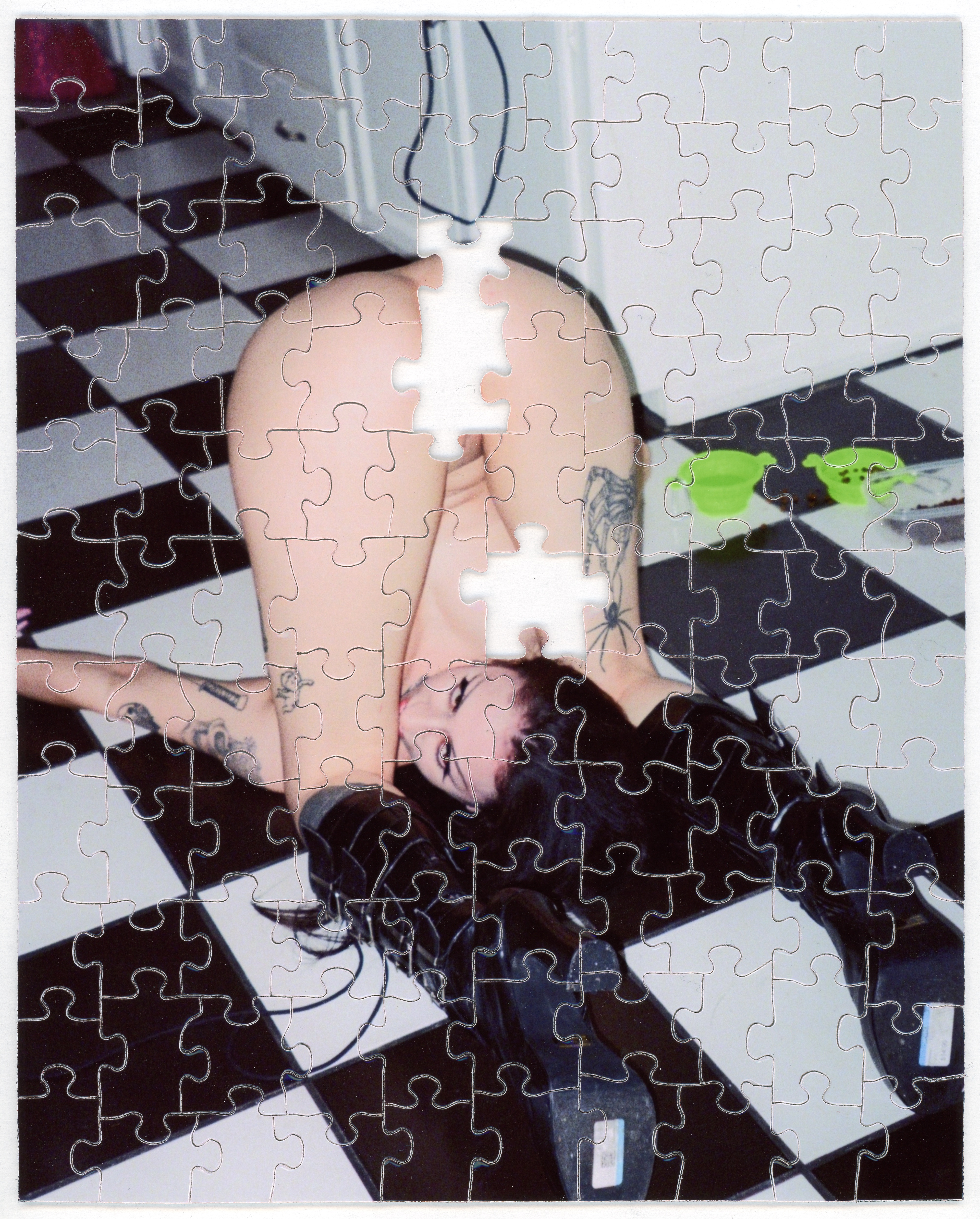
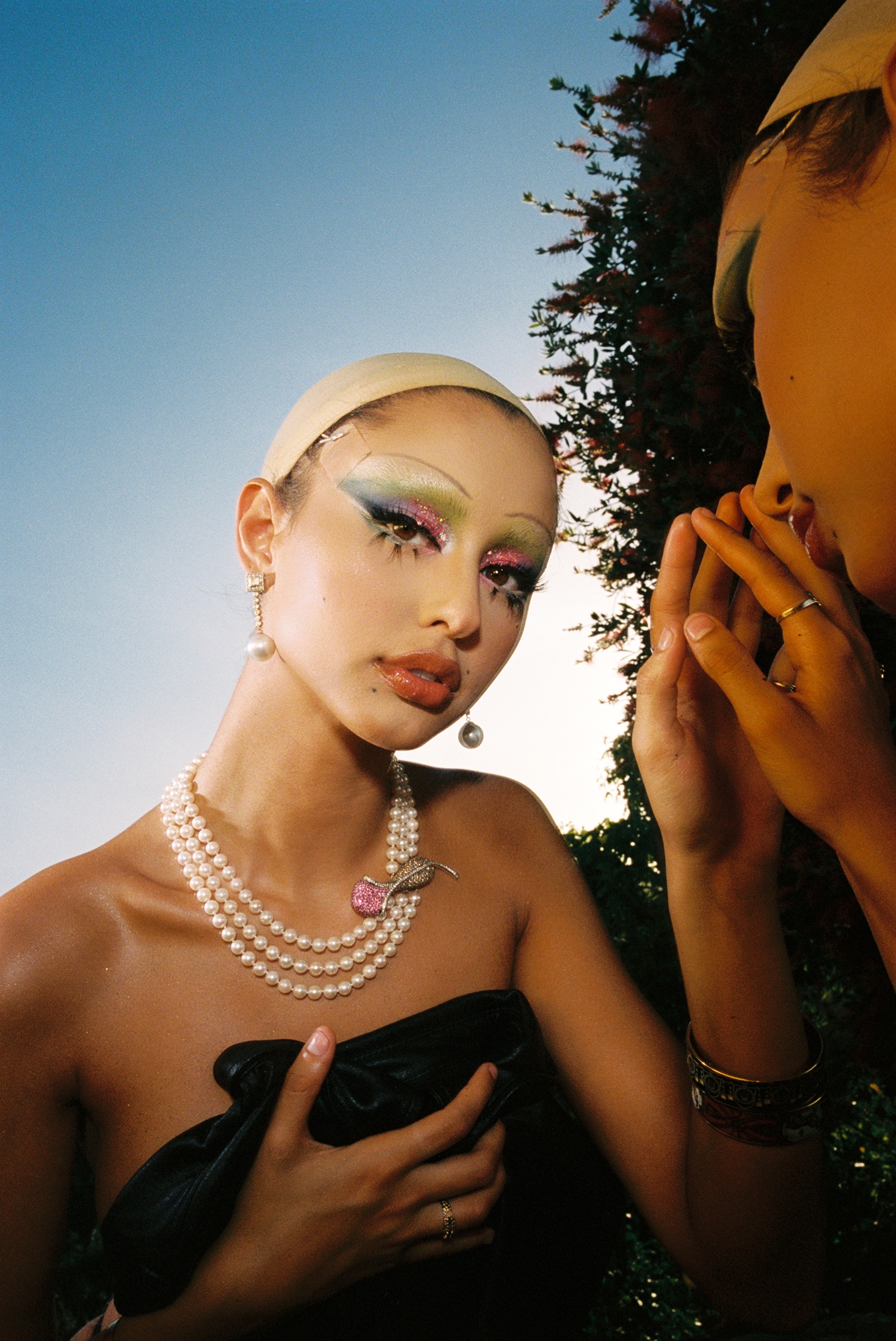
You're constantly floating between different circles. Of course, being in any POC circles is better than being in a white circle.
Absolutely. But you're never fully welcome in any circle. It doesn't matter what race it is. It doesn't matter. It's weird. And then sometimes I'll do a project and it’s a bunch of brown girls, ‘Sick!’ And then always, I don't know why, but it goes so wild. It gets so crazy. Everyone's so opinionated and strong, Middle Eastern women. Oh my God. It's like, I'm talking to myself times 10, everyone’s so stubborn. But still, I would rather work with that than a group of white people.
That's the caveat forever, ‘It's still better than working with only white people.’
Yeah! No matter how weird I may feel in a POC circle it’s still better than hearing racist passes at me on a set.
Constantly feeling like you’re undervalued, not even having to question it.
Absolutely. And obviously, the Black people on sets have it the fucking worst. I've been on sets where it's like, ‘Okay, you're not being directly racist towards me and might be cool, but you're being fucking whack and saying weird shit about Black people on Black culture,’ you know what I mean? Hip-hop was invented by Black people. Being around a lot of white artists, they're imitating all of that. Like, this is so corny of you. And it's weird. Cause you’re dumb and young and probably don't even like, think about the fact that you’re being racist.
Which is worse because they're not expected to think about it, there's no reason to think about it.
There’s that, and then there's saying the n-word. Oh my God. Once on a set, I was talking to my other photographer friends and she's like, ‘Yo, we gotta start invoicing for therapy because I was put on a white set.’ I was like, I'm down to start doing that, especially those in the Black community.
And sometimes I have to think about it, the fact that I'm even here and being in this community and shooting music stuff, it's because of Black people. We're all profiting off of this, but white people don't just don't want to drill it in their head. Without Black people these music labels won't be anywhere, you know? I'm not saying that there are not talented white artists, we all listen to them, rock and roll is mad white people. But don't get it fucked up. We all owe it to Black people.
But for me specifically, it’s misogyny. And then there are white girls getting the job over me, you know? So if it's not a white man, then it’s a white girl.
And then there’s the issue of people sometimes not even knowing what race I am or where I come from. People can tell I’m not white but they don’t know where the fuck I’m from. It's more of an American ignorance thing. They’re like, ‘What? Iraq?’ I'm like no, Iran. How do you know Iraq but you don’t know the larger country that’s right fucking next to it?
Or they know where it is and they’re like, ‘Aw shit right that country that wants to blow us up.’
Oh my God. Dealing with cops. It's always, ‘When was the last time you were in Iran? Does your family work with a government? Are you guys spies and stuff?’ You look at me and you think I must be a spy or a terrorist? And that's the first fucking question you asked me?
We were like shooting a video for a friend two months ago or something. And then I guess we were on in an area that was restricted but we didn't see the signs. And we were just shooting those like four of us at night cops pull up, fucking investigators. It was me and my sweet friends and they're all Black. And it's like, okay, here we go. This is going to be the worst fucking thing. An Iranian with three Black guys, sick. So they questioned everyone. And then to my surprise, they questioned me the longest like, ‘Oh, so you're from Iran. Oh, you were there two years ago. Okay. Yeah, let's talk more.’ The guy was like, ‘Okay, so what does your mom do? What does your dad do? Do you have family in Canada? Do you have family in America? What does your uncle do? What do your cousins do? What are their full names? Do you have your passport?’ And I was like, ‘No, why would I have my passport on me?’ I have my ID. They thought my ID was fake. My Toronto driver's license. I hated these guys. It was so wack. I have been to Iran once in like twelve years and it’s a big deal.
Something you brought up a second ago that I wanted to ask more on, how did you feel the transition of racial politics when you got here?
I grew up somewhere with my kind. You’re only around your own kind. They run the economy, the run the country. When you see white tourists, that’s the most you'll see white people. Coming to Canada was the first time that I experienced racism off the Internet or books or TV or movies. Like when you watch a lot of movies, it's like, ‘Okay, like this is racism.’ Watch it on the news. This is racism. Your parents tell you, this is racism. It's not cool. You don't treat other people like that, you know? And then you come and move to somewhere that's white dominant and you're like, ‘Whoa, why am I the weird one?’ Why is my outfit weird too? I used to wear tracksuits and Nike's. And my school, my white ass school, I used to get bullied for that make weird. But I was in a super white suburban neighborhood, if I was buying the same fit in New York, that's a whole other story. It was a shock. Like, ‘Wait, why am I the weird one?’ Why am I the one that outsider?’ It just feels lonely. I hate that I have to adapt to your routines and your way of running things.
Do you still have experiences where you go in and no matter what you've been assigned or who has hired you, you have to prove yourself?
I'm constantly fucking trying to prove myself. It gets exhausting. I go on sets where the director has the tiniest I’m getting treated like I'm the amateur. I've been doing BTS (behind the scenes) photography. Being on music video sets, no one gives a shit about BTS photography. They get paid nothing. You’re always getting bitched at. ‘You’re in the shot!’ Get out of the shot!’ Blah, blah, blah. And then most of the time they're not getting paid and not getting paid on time. Everyone uses the photos, nobody tags them. It’s just a lose, lose, lose, lose situation
This video, ‘Pardon Me,’ was the biggest fuck you to anyone that was ever like, ‘Oh, Zhamak? The BTS photographer?’ No, bro. I'm not just the BTS photographer. My photo career is seven years old now. The BTS photography, the past three, four years was my means of income and my networking. Learning and putting in my 10,000 hours.
No respect for the hustle.
No, absolutely not. And being a girl, someone’s always like, ‘You're here to fuck someone, or you already fucked someone.’ And people don’t take chances on you. I have mad artist friends that are big and that I work with a lot. And sometimes they do a project where they switch to male photographers or male directors. And I’m like, what was I doing wrong that made you feel you couldn’t trust me? What was I doing that wasn't good enough for you? Because you’re gassing me and saying I'm one of your favorite photographers. So why am I not getting hired?
No one’s giving me a break. No one's ever giving me a chance to just be like, ‘Here's a project, do whatever the fuck you wanna do.’ So that’s why I'm super thankful for this project and Yachty because he picked me. We had talked because one of my friends put us in touch and that's how it worked out. We started talking and shooting photos in Atlanta and he saw my work and I was like, ‘What if we do a little video?’ And I wasn't even thinking about doing anything crazy. And he was like, ‘I'm with it.’ And then it just turned into something else. He trusted me with one of his favorite songs on the album too. This is what I mean, this is what's important. I even told him, ‘I appreciate you and love you forever. You took a chance and you finally gave me the break that I needed.’ And being the first brown girl to shoot him and Future. That’s important to me.
And it’s also like, y'all can do it too! Just work hard. And you don't have to fuck anybody. You can just work hard and it'll take a long time, but it'll pay off eventually.
How does being put in these boxes affect your level of creativity? What do you wish you had more access to?
I just want to be looked at equally. But that's like asking God to drop a million dollars on my lap just right now.
So what’s your dream project?
Short-term, I’m trying to manifest shooting a video with Rihanna. She sounds sick. She uses a lot of women and this sounds like a dream job, you know, trying to get that this year. But dream job is where everything aligns. Everything works out. Each part of the project works out. There are no obstacles. There's no budget shortage. There's no one trying to one-up me or try to get in my way or. My word is accepted. If I'm directing or if I'm shooting and if I'm leading the project, that's trusted and that's backed up and no one is trying to come in and direct for me. And a team where we all work together and help each other and back each other up.
Do you feel like the work that you're putting out now is like properly defining you? Is that if not, what?
No.
What would you change?
I would love to work with more female artists. Healthy. Nice. Nonviolent. Just saying down with the patriarchy. Fuck all this shit. And also bringing my culture into the work. Go back to Iran. Fuck around. Bring me and my people into my work.
